Tag: Beach Volleyball
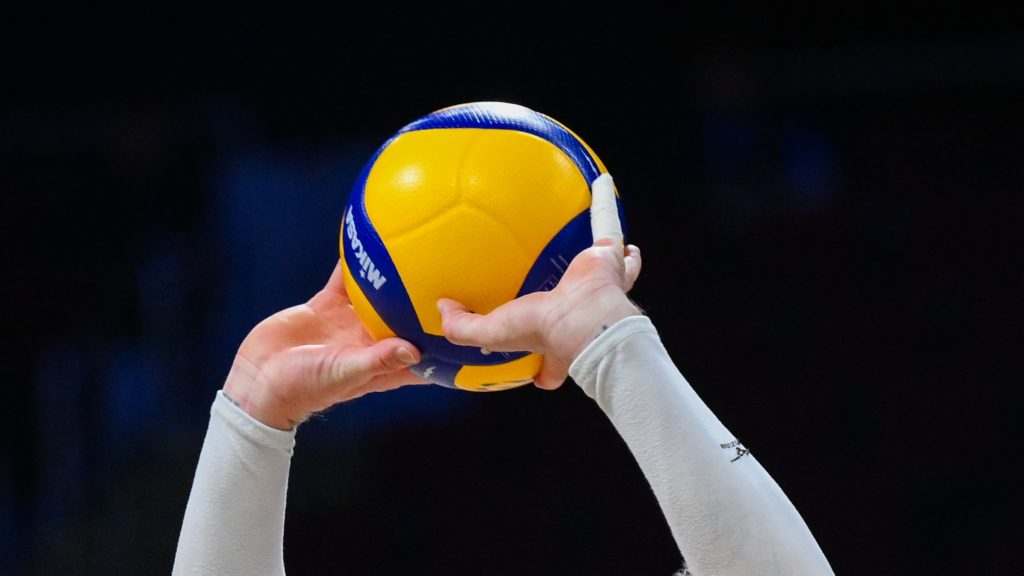
FIVB introduces new National Federation categorisation assessment
Feb 10, 2026
February 9, 2026.- Aligned with the FIVB Strategic Vision 2032, the FIVB is introducing an updated National Federation Categorisation assessment. This initiative builds on the important work already being carried out by National Federations and reflects the FIVB’s shared ambition to strengthen governance, sustainability and long-term development pathways worldwide. The new NF Categorisation is a development-focused self-assessment designed to […]

AFECAVOL Presents the First “Marta Centeno de Sajché Golden Parchment Award" to Cristóbal Marte
Feb 07, 2026
GUATEMALA CITY, Guatemala, February 7, 2026. – The Association of Central American Volleyball Federations (AFECAVOL) created the “Marta Centeno de Sajché Golden Parchment” Award during its 2026 General Assembly, celebrating its first presentation in an emotional ceremony that recognized NORCECA President Cristóbal Marte Hoffiz for his outstanding contribution to the development of regional and international […]

AFECAVOL Begins Its 2026 General Assembly Highlighting Progress and the Projection of Central American Volleyball
Feb 07, 2026
GUATEMALA CITY, Guatemala, February 6, 2026. – The Association of Central American Volleyball Federations (AFECAVOL) opened its 2026 General Assembly with the first of two working sessions in Guatemala City, focused on evaluating the activities carried out during 2025 and strengthening the development of volleyball in the region. AFECAVOL President Félix Sabio officially opened the […]
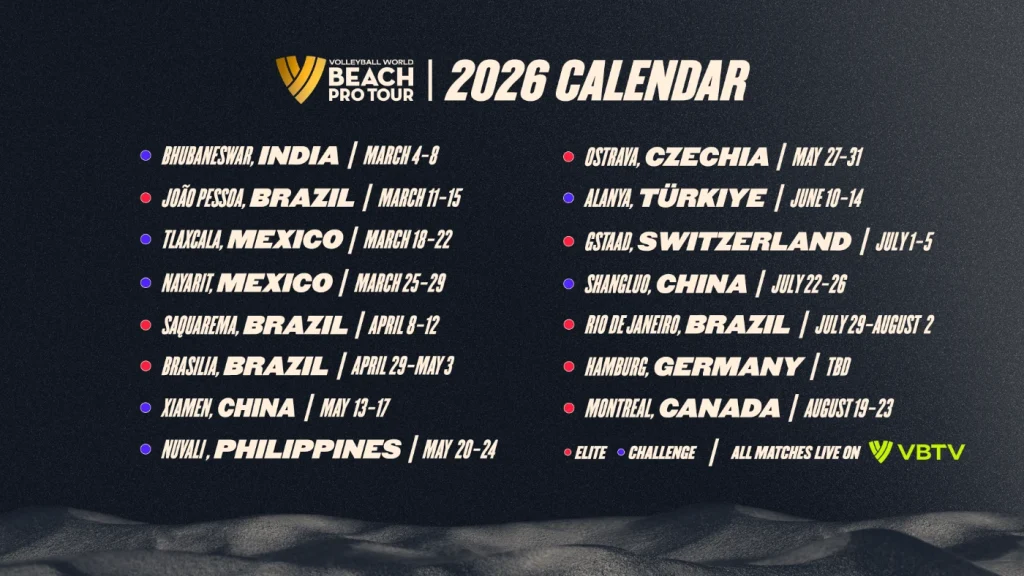
Volleyball World Announces Stops for 2026 Beach Pro Tour
Jan 30, 2026
January 30, 2026.- Volleyball World has today announced the official schedule for the 2026 Beach Pro Tour, confirming a global calendar of Elite and Challenge events running from March to August across four continents. The 2026 season will bring world-class beach volleyball to both iconic destinations and emerging markets, reinforcing the sport’s growing global reach. […]

Netherlands volleyball community commit to hosting unforgettable celebration at FIVB Beach Volleyball World Championships 2027
Jan 30, 2026
January 30, 2026.- As preparations ramp up for the FIVB Beach Volleyball World Championships 2027, the Netherlands signalled its ambition to deliver an unforgettable beach volleyball celebration, convening the Dutch volleyball community at a special kick-off event in The Hague this week. The event brought together stakeholders from all four host cities – The Hague, […]
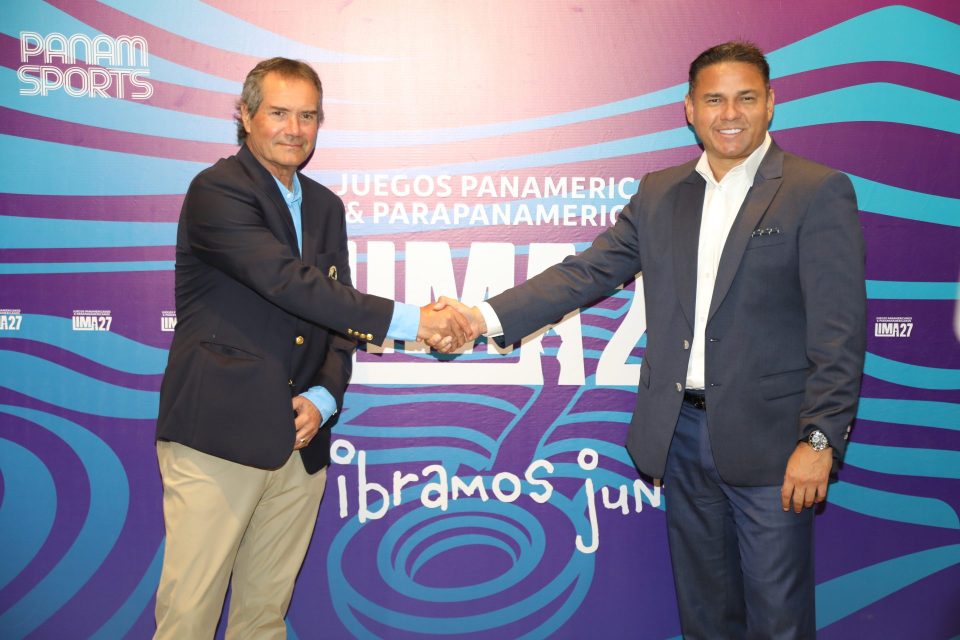
Lima 2027 Pan American Games Have A New Date
Jan 30, 2026
LIMA, Peru, January 30, 2026.- Following a decision by the Panam Sports Executive Committee, agreed upon with the Local Organizing Committee, the new dates for the XX Pan American Games Lima 2027 will be from July 23 to August 8, one week later than originally scheduled for the start of the continental sporting celebration. A […]
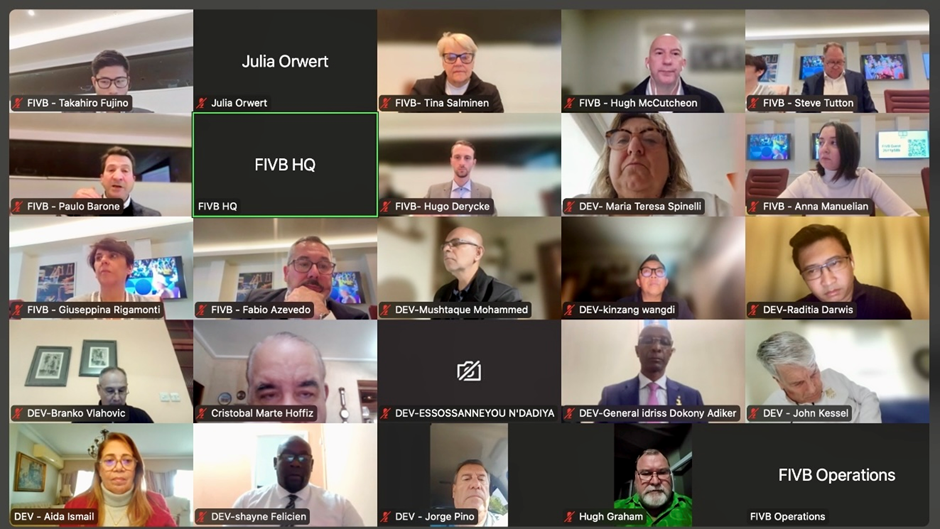
FIVB Development Commission accelerates global development under FIVB Strategic Vision 2032
Jan 22, 2026
January 22, 2026.- The FIVB Development Commission held its annual meeting yesterday, bringing together members from across the globe to review a year of substantial progress in 2025 and to lay the foundations for a transformative year ahead in 2026. The meeting reaffirmed the Commission’s central role in delivering the FIVB Strategic Vision 2032, with […]

Merry Christmas and Happy New Year
Dec 23, 2025
The rainbow is always inside the storm and in NORCECA we will be able to enjoy those beautiful colors after a year of excitement and success. Let us march together toward and extraordinary and fruitful 2026 with courage and faith. Merry Christmas and Happy New Year.
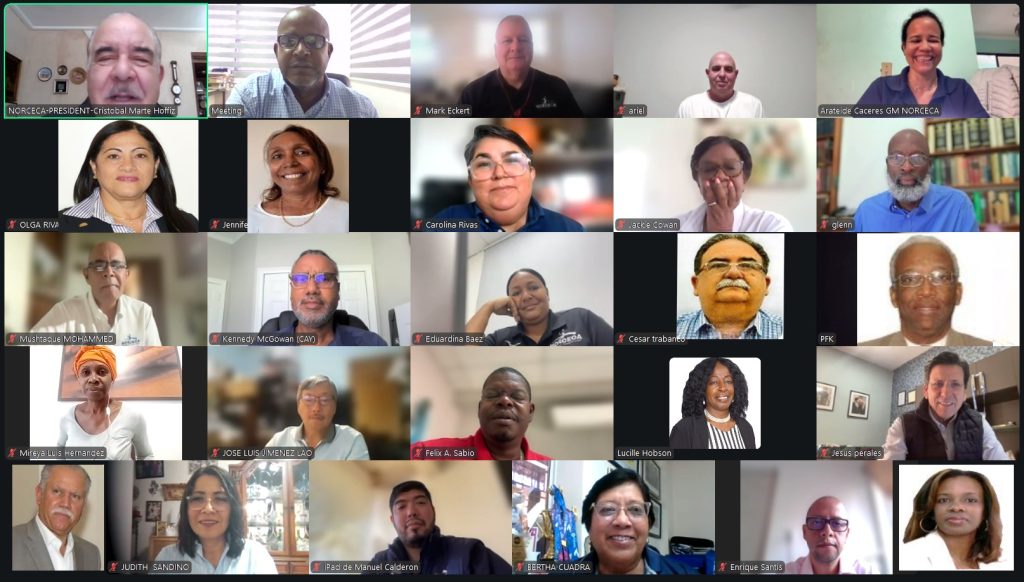
NORCECA Executive Committee and Board of Administration Meeting Closes a Remarkable 2025 with Vision Firmly Set on a Demanding 2026
Dec 20, 2025
SANTO DOMINGO, Dominican Republic, December 19, 2025. – The 2025 NORCECA Executive Committee and Board of Administration Meeting, held virtually on Friday, brought together continental leaders to review an exceptionally busy and successful year for volleyball across North, Central America and the Caribbean, while laying out an equally ambitious roadmap for 2026. The meeting opened […]
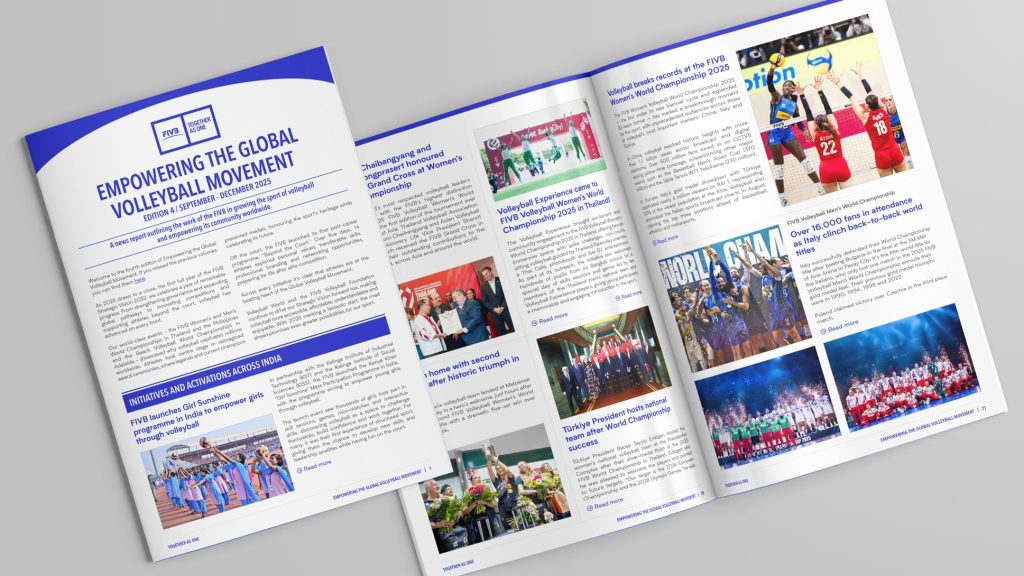
Empowering the Global Volleyball Movement: FIVB celebrates first full year of Strategic Vision 2032
Dec 20, 2025
December 19, 2025.- The FIVB is proud to present the fourth edition of Empowering the Global Volleyball Movement, reflecting a defining period in volleyball’s continued growth around the world. Covering September to December 2025, this edition captures the momentum, ambition and collective progress that have characterized the closing months of a landmark year for the sport. […]
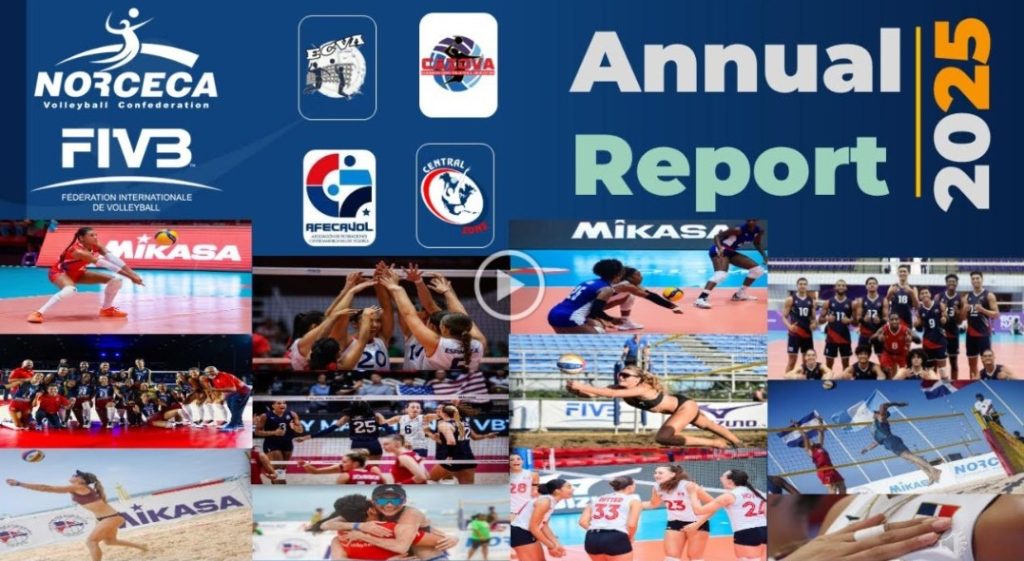
Celebrating a Year of Remarkable Volleyball
Dec 20, 2025
SANTO DOMINGO, Dominican Republic, December 18, 2025. – The North, Central America and Caribbean Volleyball Confederation (NORCECA) proudly celebrates a year of remarkable accomplishments, marked by sustained growth, extensive competition activity, and meaningful development initiatives across the continent. The NORCECA 2025 Activities Report highlights a dynamic calendar that included regional, continental, intercontinental, and international competitions, […]
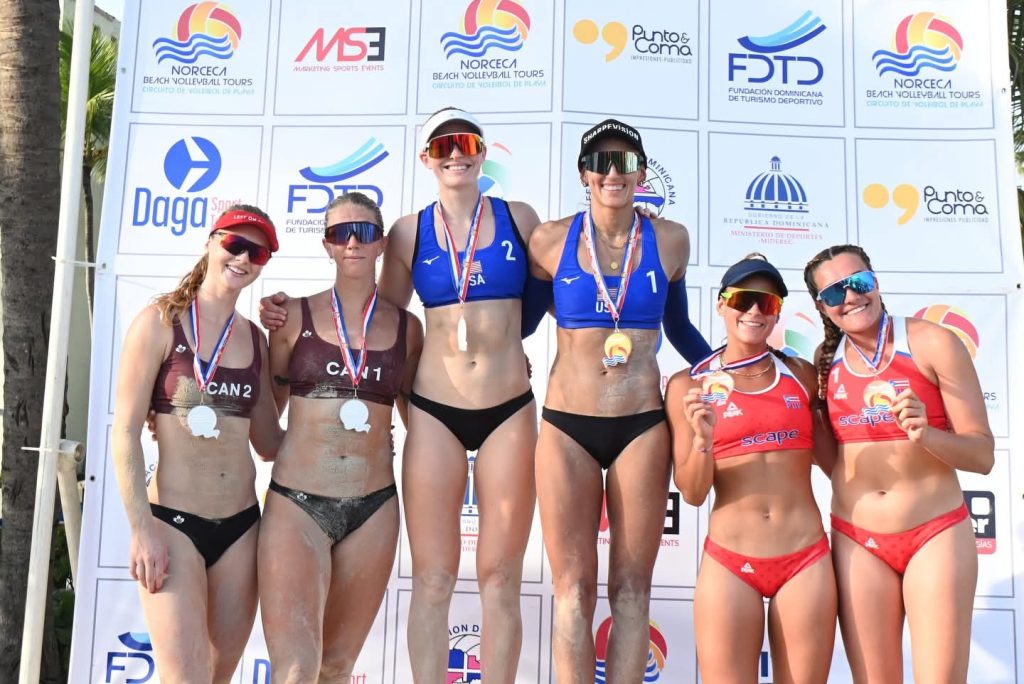
Americans Geena Urango and Megan Rice Win Gold in NORCECA Tour Finals
Dec 14, 2025
JUAN DOLIO, Dominican Republic, December 14, 2025.- The American duo of Geena Urango and Megan Rice won the gold medal match of the 2025 NORCECA Tour Finals and eleventh stage of the event, with a hard-fought 2-1 (21-19, 19-21, 15-5) victory against Marie-Alex Bélanger and Lea Monkhouse from Canada on Sunday in Juan Dolio, Dominican […]
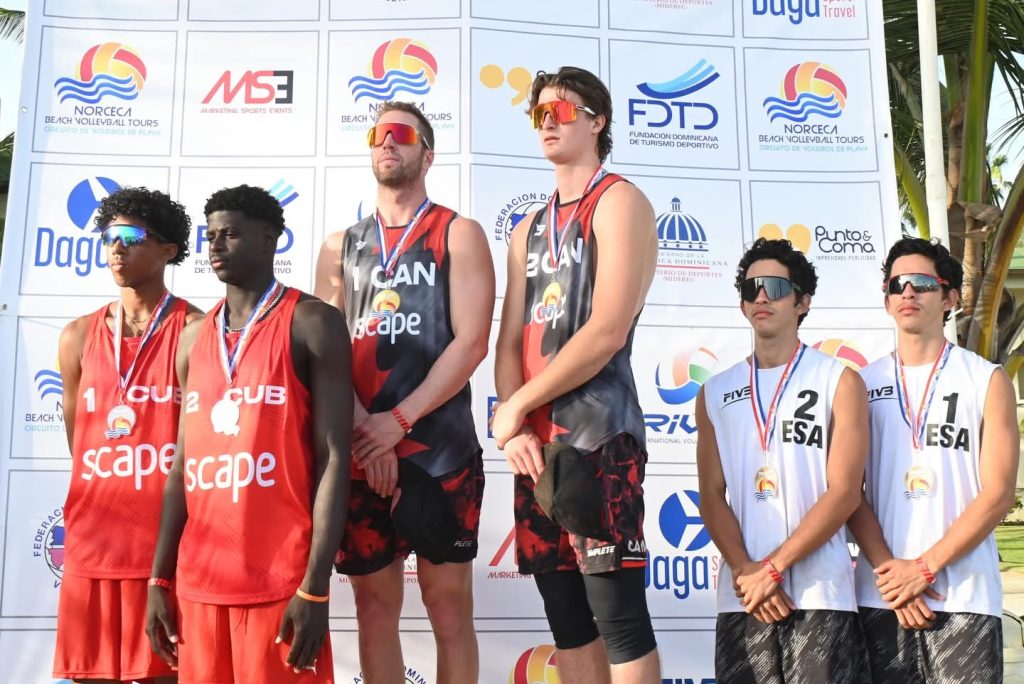
Samuel Schachter and Jonathan Pickett Crowned Champions at Juan Dolio NORCECA Tour Finals
Dec 14, 2025
JUAN DOLIO, Dominican Republic, December 14, 2025.– Canada’s Samuel Schachter and Jonathan Pickett were crowned champions of the 2025 NORCECA Tour Finals in Juan Dolio after defeating Cuba’s Damián Gómez and Eblis Veranes in straight sets, 2-0 (21-18, 22-20). It marked the first NORCECA Tour gold medal for Schachter and Pickett as a team. Schachter […]
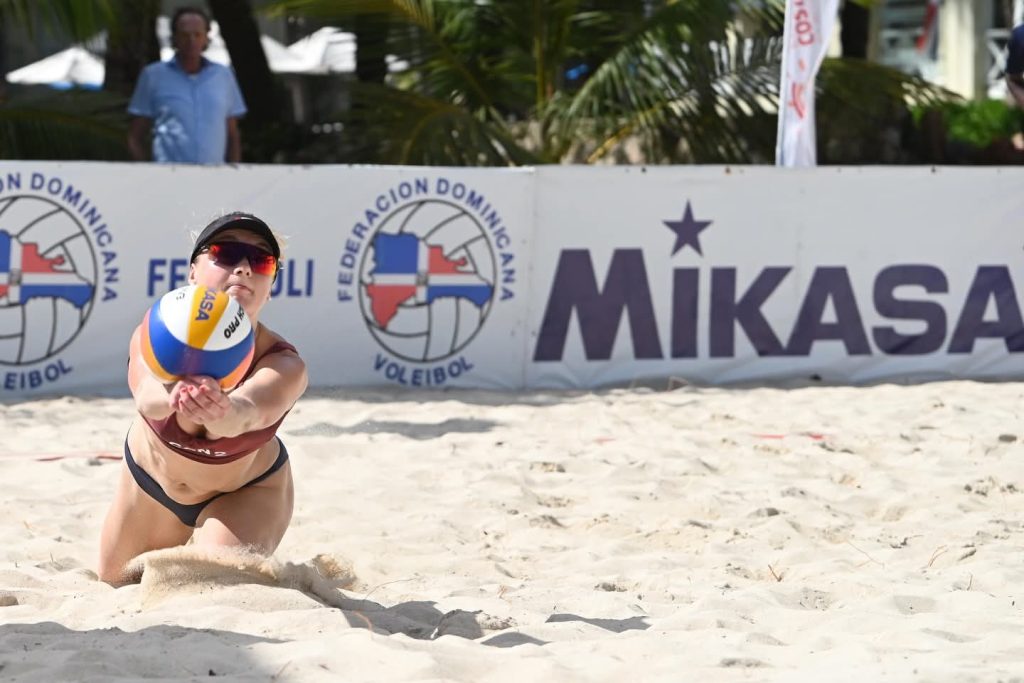
Puerto Rico, Canada, USA and Venezuela Secure Spots in Women’s Final Four at NORCECA Tour Finals
Dec 13, 2025
JUAN DOLIO, Dominican Republic, December 13, 2025.- The women’s semifinals of the 2025 NORCECA Beach Volleyball Tour Finals are set, with duos from Puerto Rico, Canada, the United States, and Venezuela advancing to the Final Four at Juan Dolio. Puerto Rico’s María González and Allanis Navas, Canada’s Marie-Alex Bélanger and Lea Monkhouse, USA’s Geena Urango […]
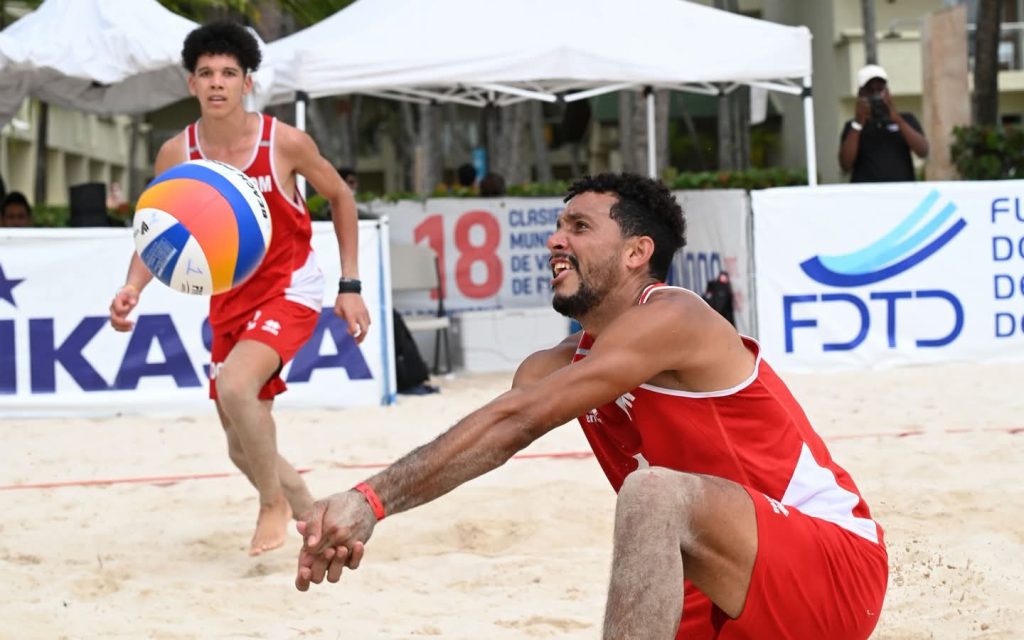
Canada, El Salvador, Cuba and Dominican Republic Advance to Men’s Semifinals at NORCECA Tour Finals
Dec 13, 2025
JUAN DOLIO, Dominican Republic, December 13, 2025.– Canada, El Salvador, Cuba, and host nation Dominican Republic advanced to the men’s semifinals of the 2025 NORCECA Beach Volleyball Tour Finals in Juan Dolio. In one of the semifinals, Canada’s Samuel Schachter and Jonathan Pickette will face the Dominican Republic’s cousins Hayerling and Melvin De Jesús. The […]

Mexico, Nicaragua, Canada and USA Women Start Strong with Two Wins Each at NORCECA Beach Tour Finals
Dec 12, 2025
JUAN DOLIO, Dominican Republic, December 12, 2025. – The women’s teams from Mexico, Nicaragua, Canada and the United States opened the NORCECA Beach Tour Finals in commanding fashion on Friday at Juan Dolio Beach, each securing two victories to set the pace in their respective pools. In Pool C, Mexico’s Susana Torres/Atenas Gutiérrez and Nicaragua’s […]

Six Men’s Teams Go Undefeated Through Two Matches on Day One of the 2025 NORCECA Tour Finals
Dec 12, 2025
JUAN DOLIO, Dominican Republic, December 12, 2025. – Six men’s teams—representing the Dominican Republic, Belize, El Salvador, Guatemala, Mexico, and Canada—closed out day one of the 2025 NORCECA Beach Tour Finals with perfect 2-0 records, setting the stage for decisive matchups on Saturday at Juan Dolio Beach. Local favorites Hayerling De Jesús and Melvin De […]
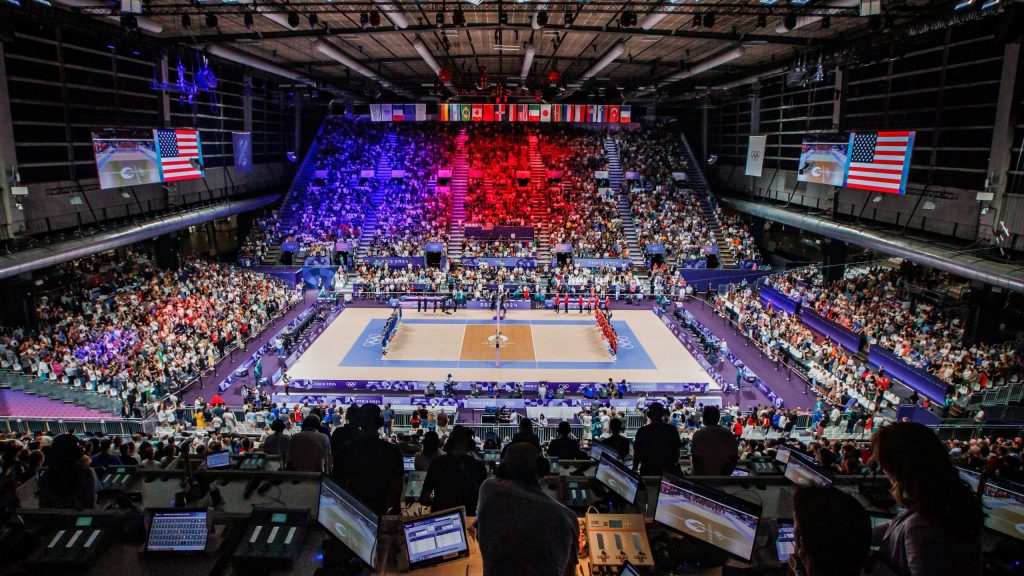
Volleyball and Beach Volleyball qualification systems for LA28 Olympic Games confirmed
Dec 12, 2025
December 11, 2025.- The Volleyball and Beach Volleyball Qualification Systems for the Los Angeles 2028 Olympic Games have been officially unveiled, following approval from both the IOC Executive Board and the FIVB Board of Administration. Volleyball and Beach Volleyball will once again feature prominently on the Olympic stage from 14 to 30 July 2028. Beach […]
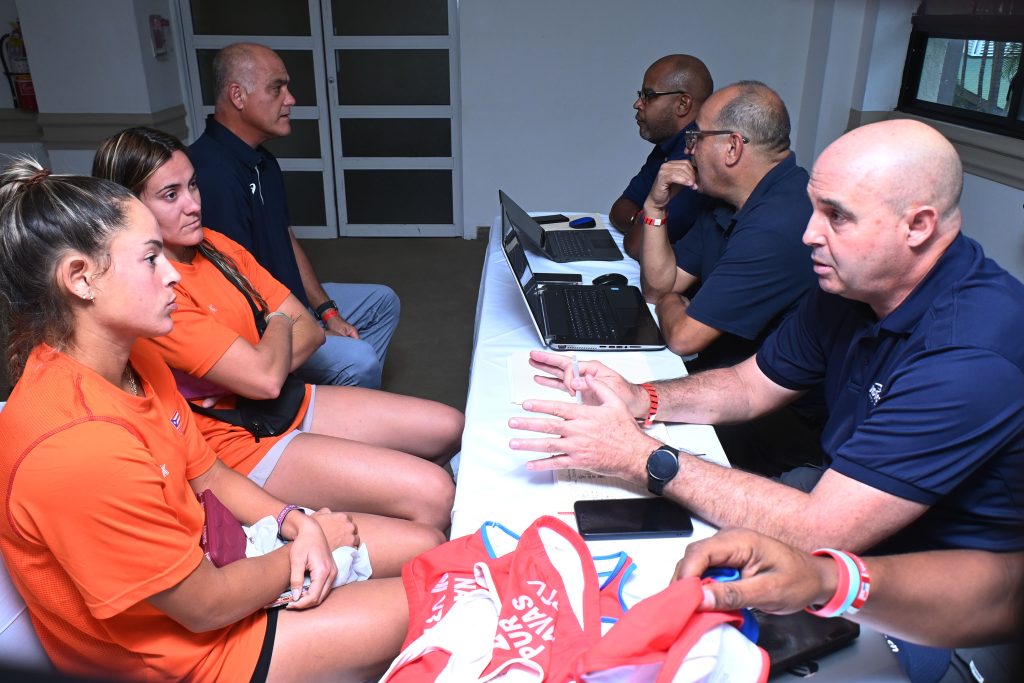
The NORCECA 2025 Beach Volleyball Tour Finals Kicks Off in Juan Dolio
Dec 11, 2025
JUAN DOLIO, Dominican Republic, December 11, 2025. – The 2025 NORCECA Beach Volleyball Tour Finals will begin this Friday at Juan Dolio Beach, featuring thirty teams seeking to earn valuable points toward the upcoming season. This eleventh and decisive stop of the 2025 calendar will award double points for the NORCECA continental ranking as well […]
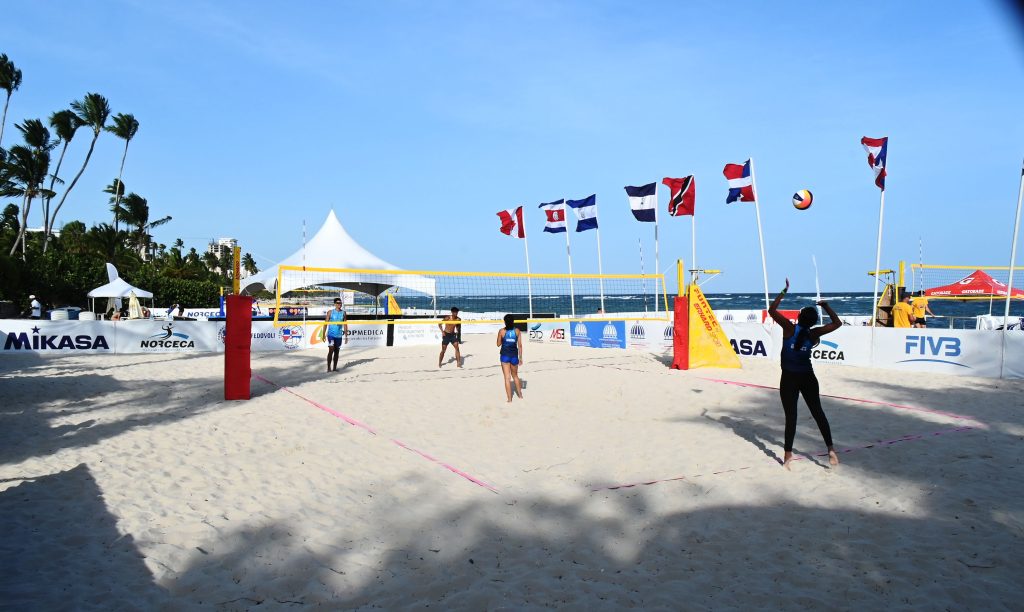
Juan Dolio Gears Up for the Final Stage of the 2025 NORCECA Tour
Dec 10, 2025
JUAN DOLIO, Dominican Republic, December 8, 2025.– The excitement of continental beach volleyball reaches its peak with the Final Stage and eleventh stop of the 2025 NORCECA Tour, set to take place from December 12 to 14 in the picturesque sands of Juan Dolio, Dominican Republic. The final stage of the 2025 NORCECA Tour promises […]

María González and Allanis Navas: Puerto Rico’s Warriors Who Dominate the NORCECA Tour
Dec 01, 2025
MANAGUA, Nicaragua, December 1, 2025.– With seven gold medals and one bronze in their eight appearances across the ten stops of the 2025 NORCECA Beach Volleyball Tour, María González and Allanis Navas have asserted their continental dominance, breaking the long-standing hold of teams from the United States, Mexico, and Canada. They are Puerto Rico’s new […]
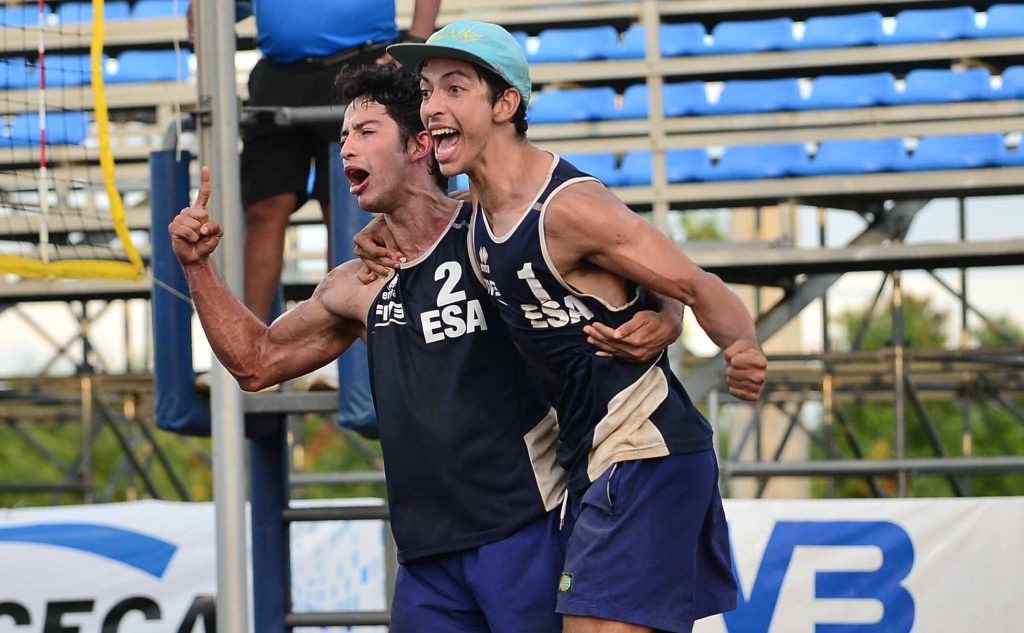
With Faith and Belief in Themselves, the Guardado Twins Achieve a Historic Triumph for El Salvador
Dec 01, 2025
MANAGUA, Nicaragua, December 1, 2025. – A brotherly embrace, of teammates, of accomplices, of warriors emerging victorious from a fierce battle. Then came the tears, the laughter, the phone calls home, and the celebration. That is how El Salvador’s twin brothers Yoel and Christopher Guardado lived the greatest night of their careers in Managua. On […]
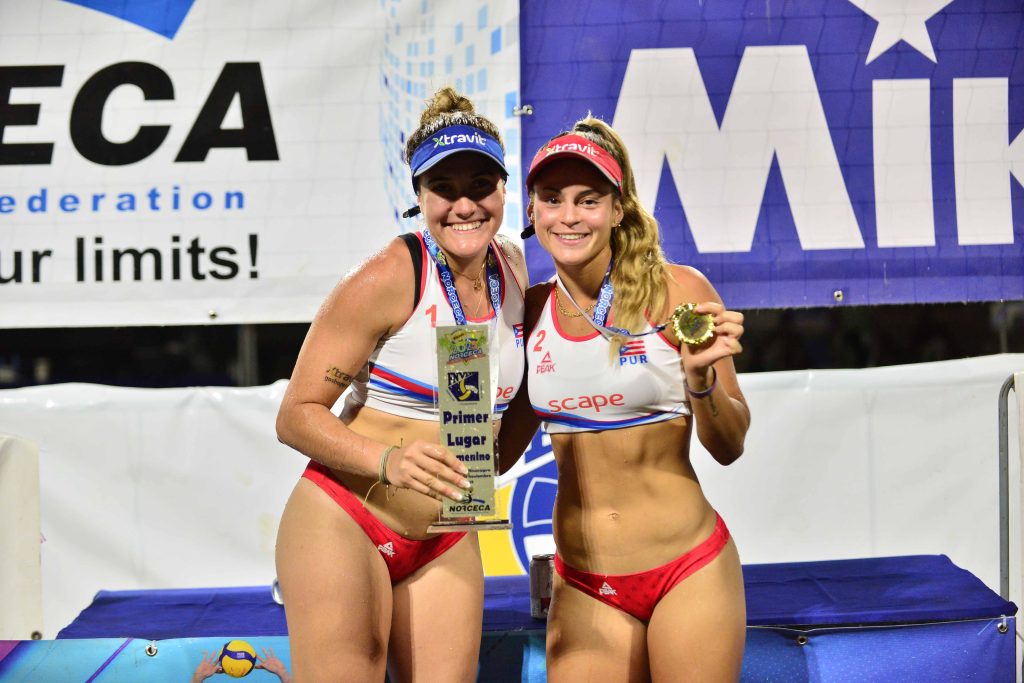
María González and Allanis Navas Unstoppable: Claim Their Seventh Gold Medal of the Season
Nov 30, 2025
MANAGUA, Nicaragua, November 30, 2025.– Puerto Ricans María González and Allanis Navas once again delivered a standout performance on the sand, capturing their seventh gold medal of the 2025 NORCECA Beach Volleyball Tour after defeating Mexico’s Susana Torres and Atenas Gutiérrez 2-0 (21-15, 21-18) in Managua. With an impenetrable defense and a serve that consistently […]

Guardado Twins Capture Historic Gold Medal at the Tenth Stop of the NORCECA Tour
Nov 30, 2025
MANAGUA, Nicaragua, November 30, 2025.– El Salvador’s twins Yoel and Christopher Guardado wrote a golden chapter for their country by defeating Mexico’s Miguel Sarabia and Inés Lares 2-0 (21-19, 22-20) to claim the title at the tenth stop of the 2025 NORCECA Beach Volleyball Tour in Managua. With inspiration, grit, and unwavering confidence, the 22-year-old […]

González and Navas Aim for Their Seventh NORCECA Tour Final
Nov 29, 2025
MANAGUA, Nicaragua, November 28, 2025. – Puerto Rico’s María González and Allanis Navas continue their dominant run in the 2025 NORCECA Beach Volleyball Tour and will aim to reach their seventh final when they face the U.S. duo Katherine Reilly/Maya Gessner in the semifinals at Paseo Xolotlán sports complex in Managua. González/Navas have earned six […]
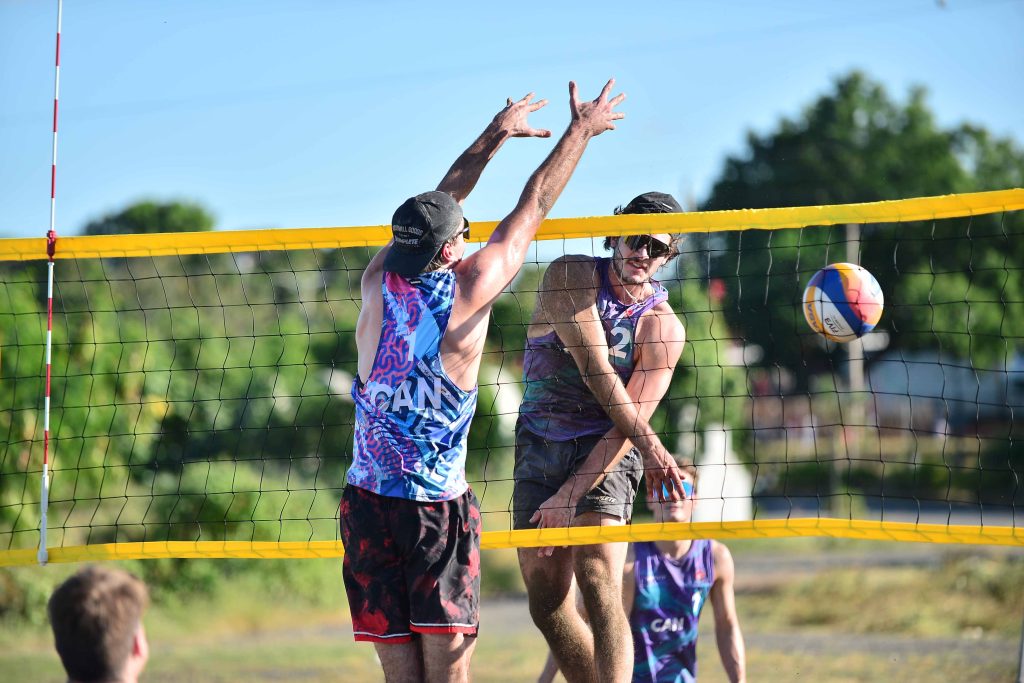
Mexico vs. USA and Canada vs. El Salvador: Men’s Semifinals Set at the NORCECA Tour in Managua
Nov 29, 2025
MANAGUA, Nicaragua, November 29, 2025. – The United States, Mexico, El Salvador, and Canada secured their spots in the men’s semifinals of the 10th stop of the NORCECA Beach Volleyball Tour, held at the Paseo Xolotlán sports complex. In the semifinals, the U.S. duo Lev Priima/John Schwengel will face Mexico’s Miguel Sarabia/Inés Lares, while Canada’s […]
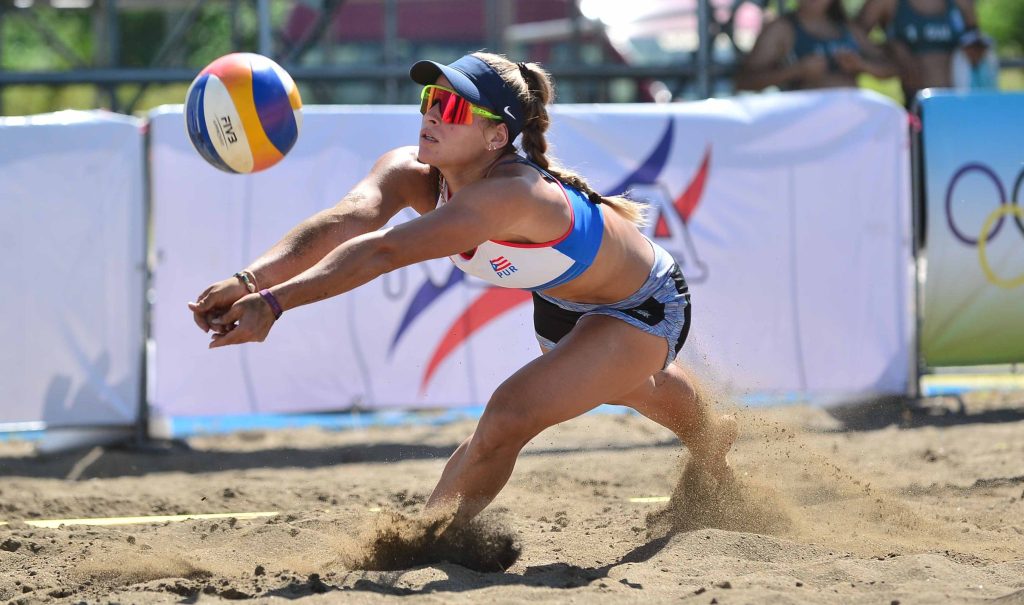
Seven Women’s Teams Remain Undefeated in a Spectacular Opening at the NORCECA Tour in Managua
Nov 28, 2025
MANAGUA, Nicaragua, November 28, 2025. – Seven women’s pairs showcased their outstanding form on the opening day of the tenth stop of the 2025 NORCECA Beach Volleyball Tour in Managua. Puerto Rico, Mexico, Venezuela, Nicaragua, the United States, and both Canadian teams displayed their full display of skills, making it clear that the battle for […]
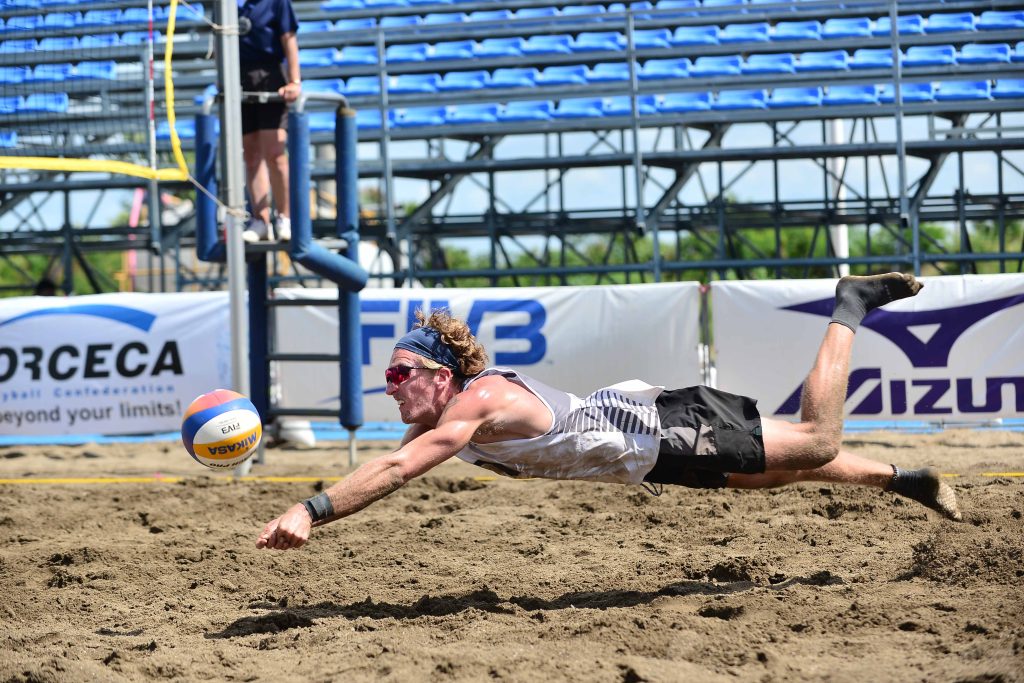
Nicaragua, United States, Mexico, Venezuela and Canada Men undefeated in Managua
Nov 28, 2025
MANAGUA, Nicaragua, November 28, 2025. – Nicaragua’s Mora/López, USA’s Priima/Schwengel, Mexico’s Sarabia/Lares, Venezuela’s Juliangel/Esyenser and Canada’s De Greeff/Licht remain undefeated, showing their intentions of reaching the top of the men’s podium at the tenth stop of the NORCECA Beach Volleyball Tour in Managua. In Pool A, hosts Rubén Mora/Dany López earned two victories. The first […]
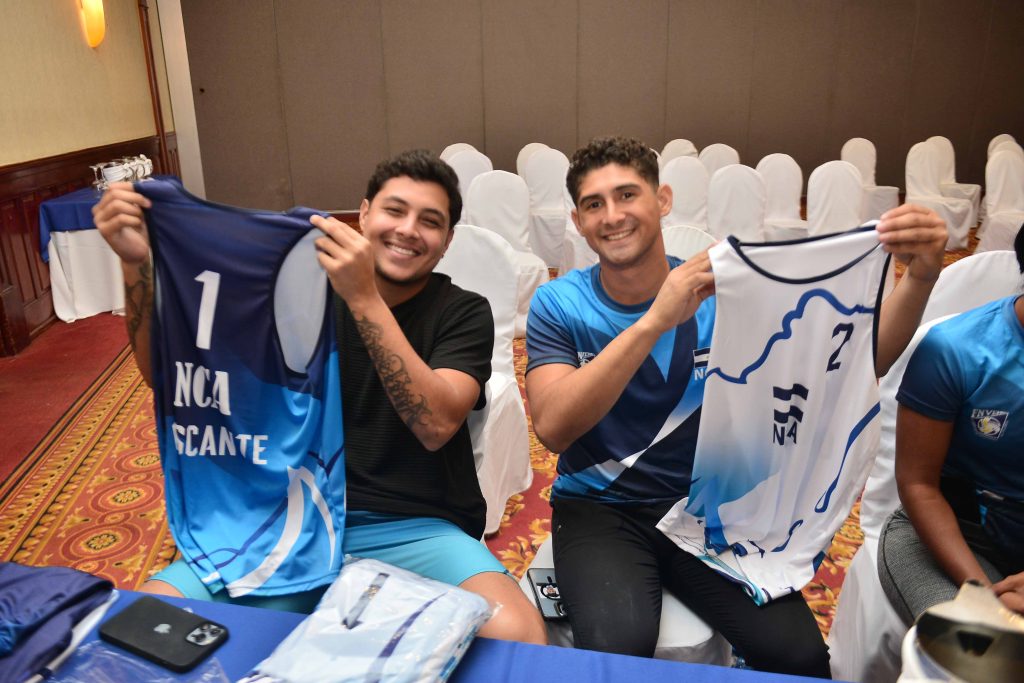
The excitement of the 2025 NORCECA Tour kicks off in Managua
Nov 28, 2025
MANAGUA, Nicaragua, November 27, 2025.– The tenth stop of the 2025 NORCECA Beach Volleyball Tour is set to begin at the Paseo Xolotlán sports complex with the participation of 32 teams, 16 in each gender. This will be the penultimate stop of the NORCECA Tour ahead of the Finals in Juan Dolio, Dominican Republic, in […]
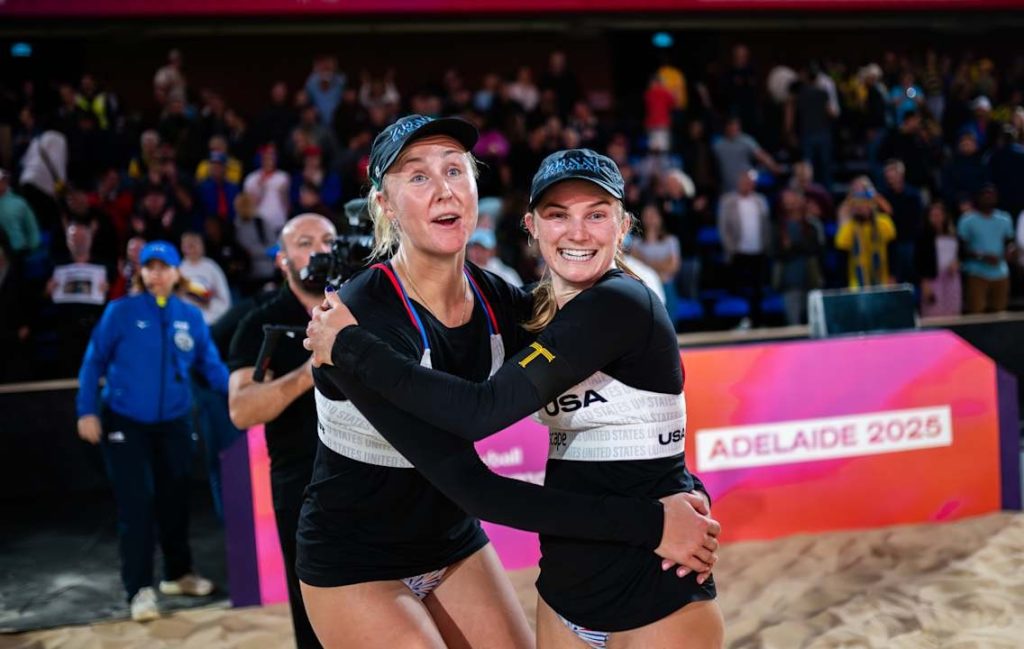
Nuss & Brasher top World Ranking for the first time!
Nov 25, 2025
November 25, 205.- The world has a new number one in women’s beach volleyball. Just a day after claiming silver at the FIVB Beach Volleyball World Championship in Adelaide, Kristen Nuss & Taryn Brasher of the United States emerged on top of the women’s FIVB Beach Volleyball World Ranking for the first time. After Monday’s […]
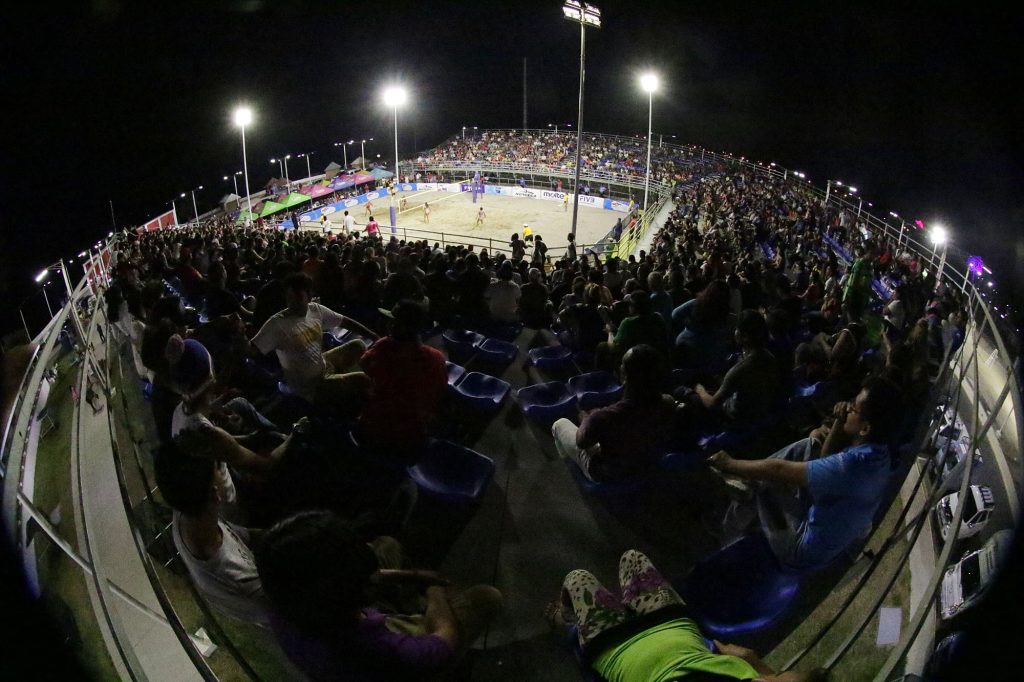
Managua Prepares to Host the Tenth Stop of the NORCECA Tour 2025
Nov 25, 2025
MANAGUA, Nicaragua, November 25, 2025.– The Paseo Xolotlán sports complex will host the tenth stop of the 2025 NORCECA Beach Volleyball Tour, scheduled to take place from November 28 to 30 in the Nicaraguan capital. This will be the fourth time that this impressive venue welcomes the prestigious continental circuit, having previously hosted editions in […]
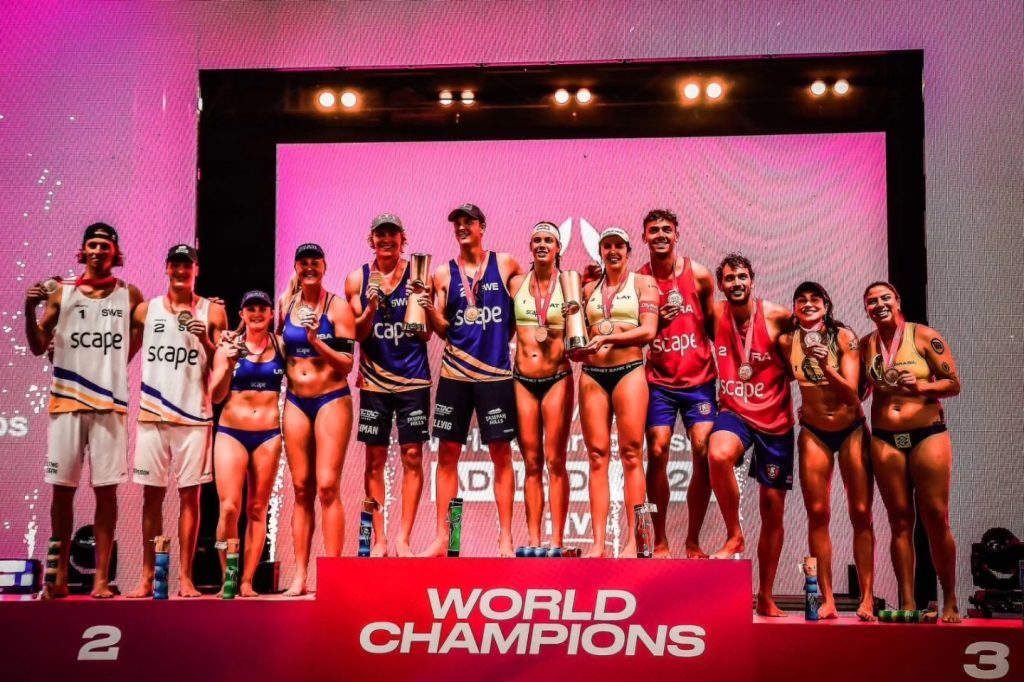
USA’s Nuss & Brasher Win Silver at 2025 FIVB Beach Volleyball World Championship
Nov 23, 2025
ADELAIDE, Australia, November 23, 2025.- USA’s Kristen Nuss & Taryn Brasher captured the silver medal at the FIVB Beach Volleyball Women’s World Championship, securing the second World Championship podium of their careers. The American duo, who previously earned bronze in Mexico in 2023, battled fiercely in Sunday’s gold medal match in Adelaide, Australia, before falling […]
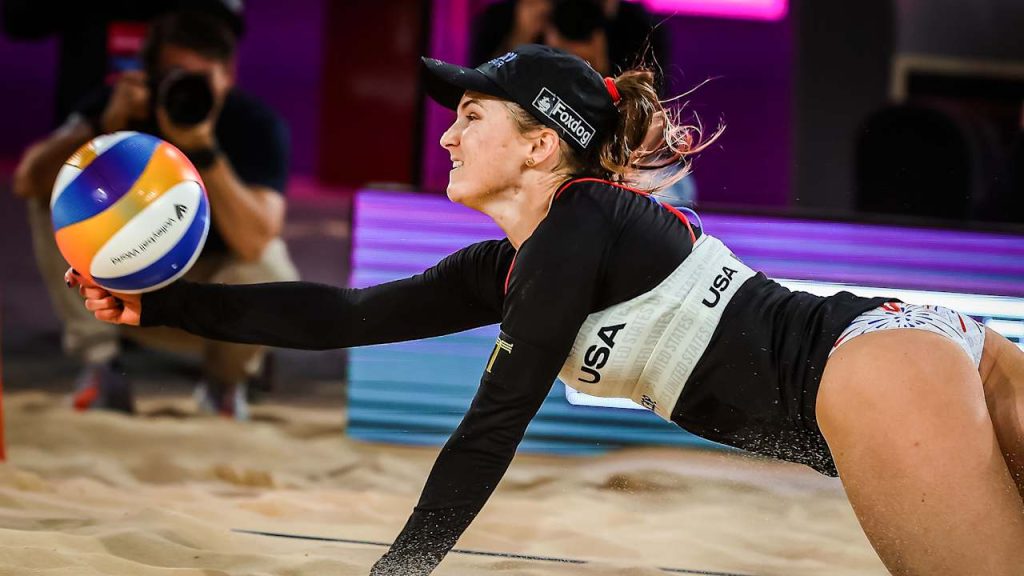
Nuss & Brasher produce comeback semifinal win to qualify for their first World Championship final
Nov 22, 2025
ADELAIDE, Australia, November 22, 2025.- USA’s Kristen Nuss & Taryn Brasher will face Latvia’s Tina Graudina & Anastasija Samoilova in Sunday’s final of the women’s FIVB Beach Volleyball World Championship in Adelaide. In the second semifinal on Saturday in Australia, the third-seeded Americans defeated second-seeded Carol Solberg & Rebecca Cavalcanti, who will get to battle […]
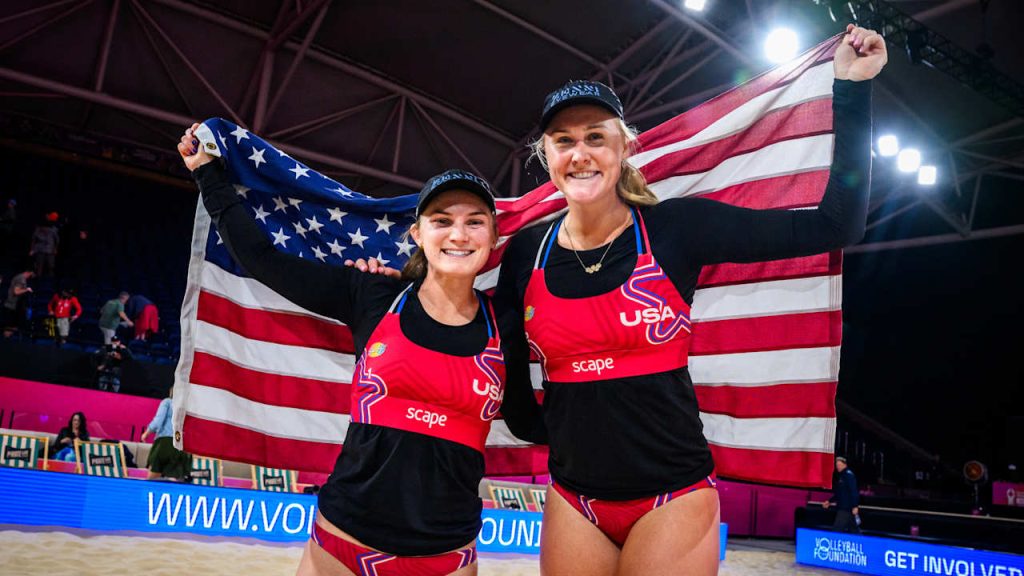
Brasher/Nuss Claim Semifinal Spot in Adelaide
Nov 21, 2025
ADELAIDE, Australia, November 21, 2025.- Americans Taryn Brasher and Kristen Nuss won their quarterfinal duel on Friday and are set to clash against Brazilians Carol Salgado/Rebecca Cavalcanti in the FIVB Beach Volleyball World Championship’s Semifinals. Brasher/Nuss are the only NORCECA teams alive in the event, in both women and men. Watch the FIVB Beach Volleyball […]
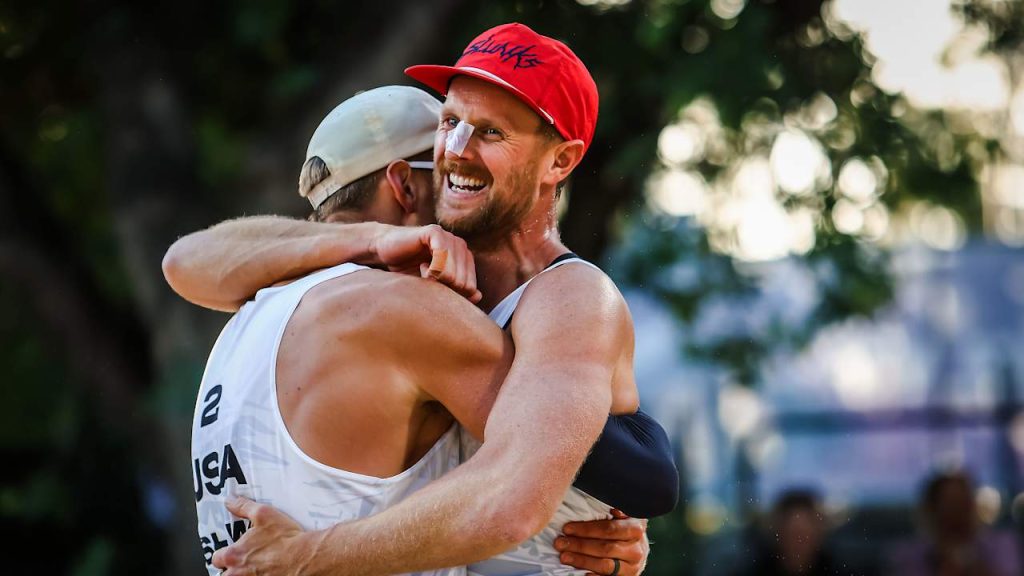
Five NORCECA Teams Reach Quarterfinals in Adelaide
Nov 21, 2025
ADELAIDE, Australia, November 20, 2025.- Five teams from NORCECA advanced to the quarterfinals of the 2025 FIVB Beach Volleyball World Championship in Adelaide, Australia. Americans Chaim Schalk and James Shaw upset Cuban Olympians Jorge Alayo and Noslen Díaz on their way to the men’s quarterfinals. The Americans won two close sets 2-0 (21-19, 22-20) to […]
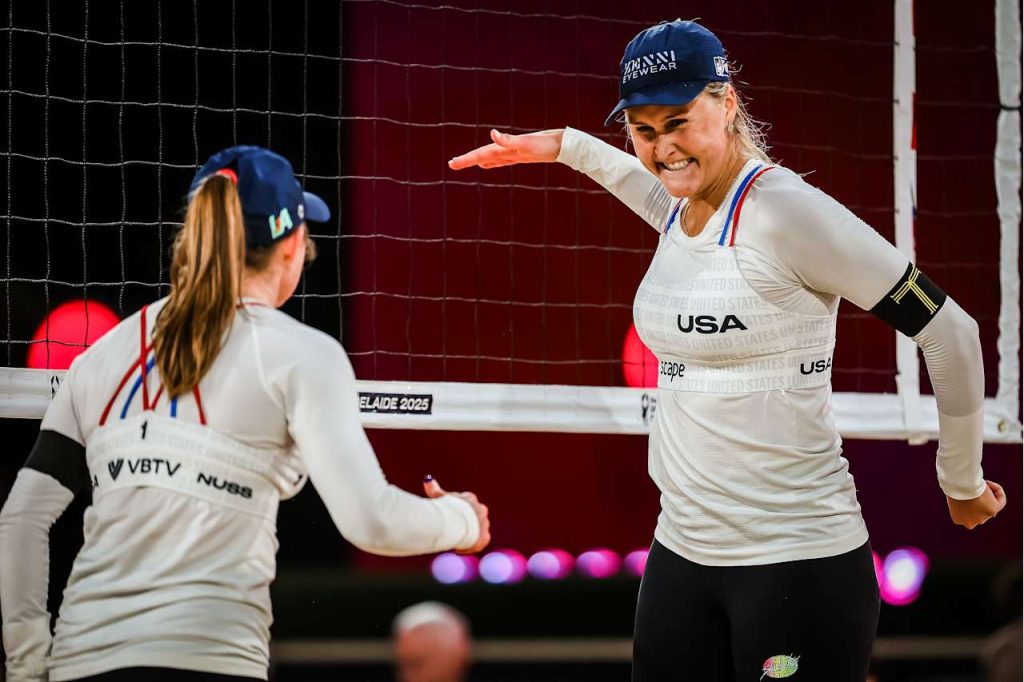
Nuss & Brasher against Stam & Schoon in high-profile eighthfinal in Adelaide
Nov 19, 2025
ADELAIDE, Australia, November 19, 2025.- The last eight women’s eighthfinalists emerged and the last four eighthfinal match-ups took shape at the FIVB Beach Volleyball World Championship in Adelaide on Wednesday. In the most interesting of Thursday’s battles for the quarterfinal spots, USA’s Kristen Nuss & Taryn Brasher will take on Katja Stam & Raisa Schoon […]
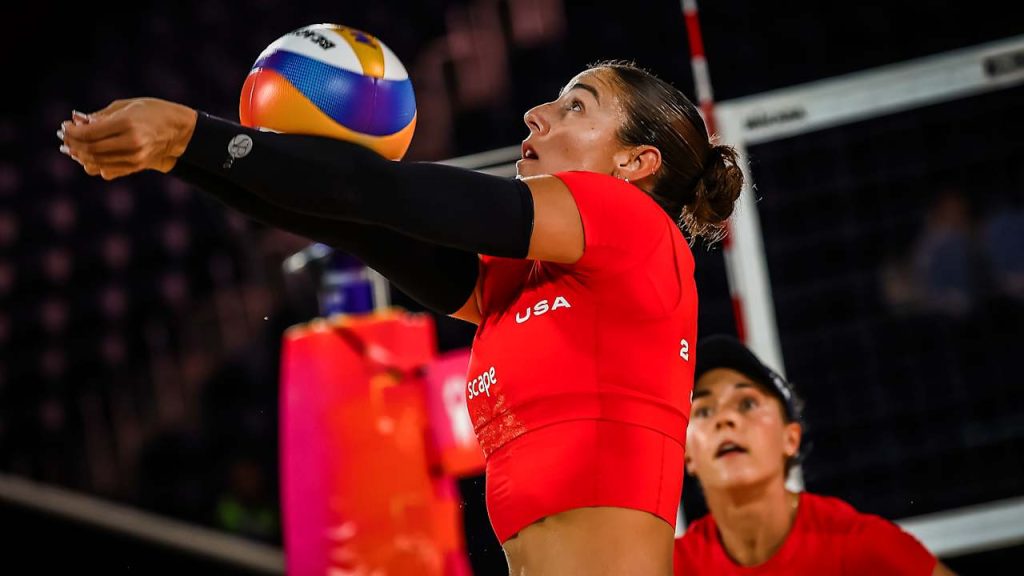
USA’s Donlin & Denaburg and Canada’s Melissa & Brandie Move to Eightfinals in Adelaide
Nov 18, 2025
ADELAIDE, Austrialia, November 18, 2025.- Julia Donlin & Lexy Denaburg of the United States and Melissa Humana-Paredes & Brandie Wilkerson advance to the FIVB Beach Volleyball World Championship eighthfinals in Adelaide. In the longest running and one of the most interesting matches of the eight women’s sixteenthfinals played on Tuesday, 16th-seeded Julia Donlin & Lexy […]
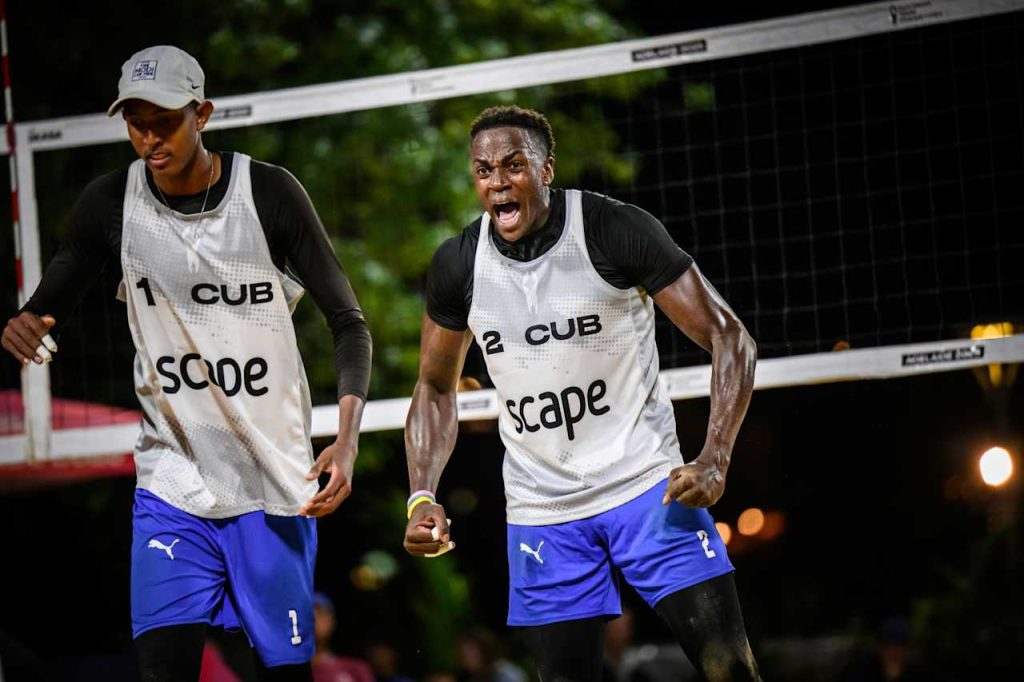
Cubans Diaz & Alayo and USA’s Schalk & Shaw among first eighthfinalists in Adelaide
Nov 18, 2025
ADELAIDE, Australia, November 18, 2025.- Cuba’s Noslen Diaz & Jorge Alayo and Chaim Schalk & James Shaw of the United States are two of the first eight eighthfinalists of the men’s FIVB Beach Volleyball World Championship in Adelaide. Watch the FIVB Beach Volleyball World Championships onVBTV FIVB Beach Volleyball World Championships: schedule and results Ninth-seeded Chaim […]
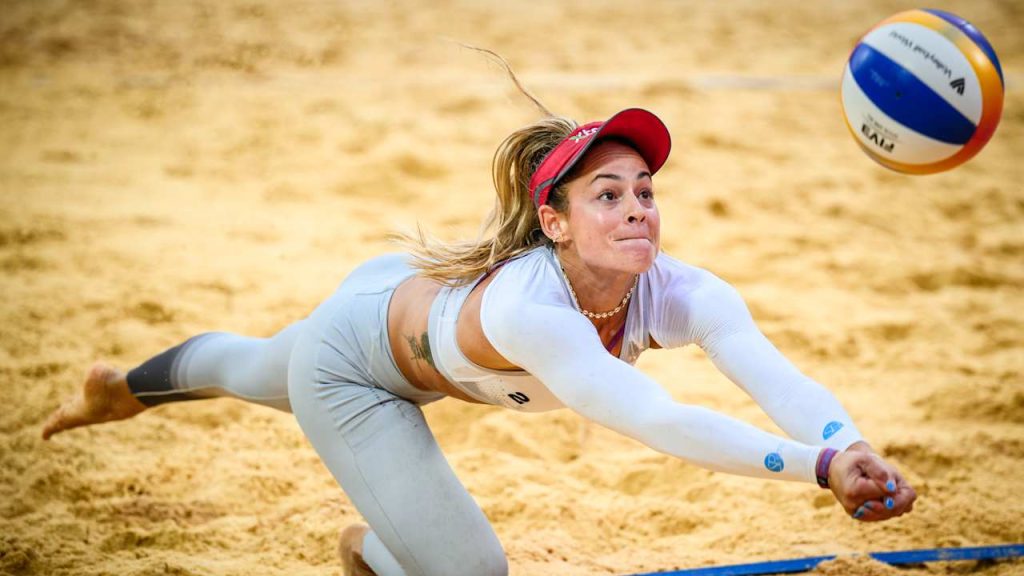
Six NORCECA Women’s Teams Advance at the 2025 FIVB Beach Volleyball World Championship
Nov 17, 2025
ADELAIDE, Australia, November 17, 2025. – Six women’s teams from NORCECA have advanced from the pool stage of the 2025 FIVB Beach Volleyball World Championship in Adelaide. From the United States, three pairs topped their groups: Kristen Nuss/Taryn Brasher (Pool C), Terese Cannon/Megan Kraft (Pool D), and Molly Shaw/Kelly Cheng (Pool G). Julina Donlin/Lexy Denaburg […]
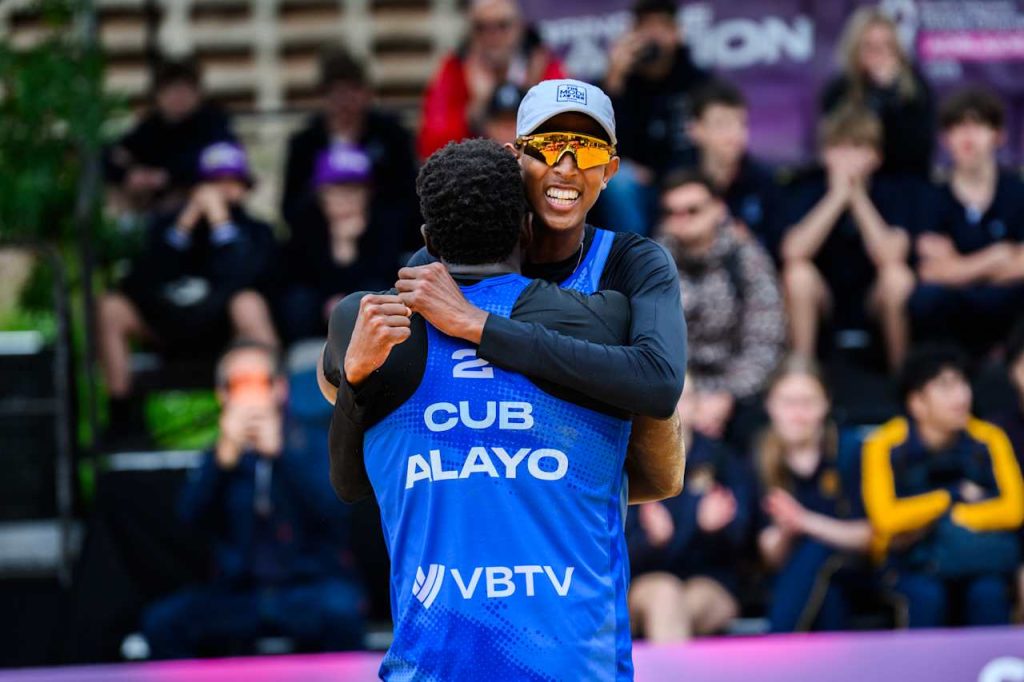
Men’s Playoff Bracket at Adelaide 2025 Takes Shape, Featuring Five NORCECA Duos
Nov 17, 2025
ADELAIDE, Australia, November 17, 2025. – The first phase of the men’s FIVB Beach Volleyball World Championship in Australia concluded on Monday after four days of competition. The 24 teams that finished first or second in their pools booked direct spots in the round of 32 (sixteenthfinals), along with the four best-ranked third-place teams, including […]
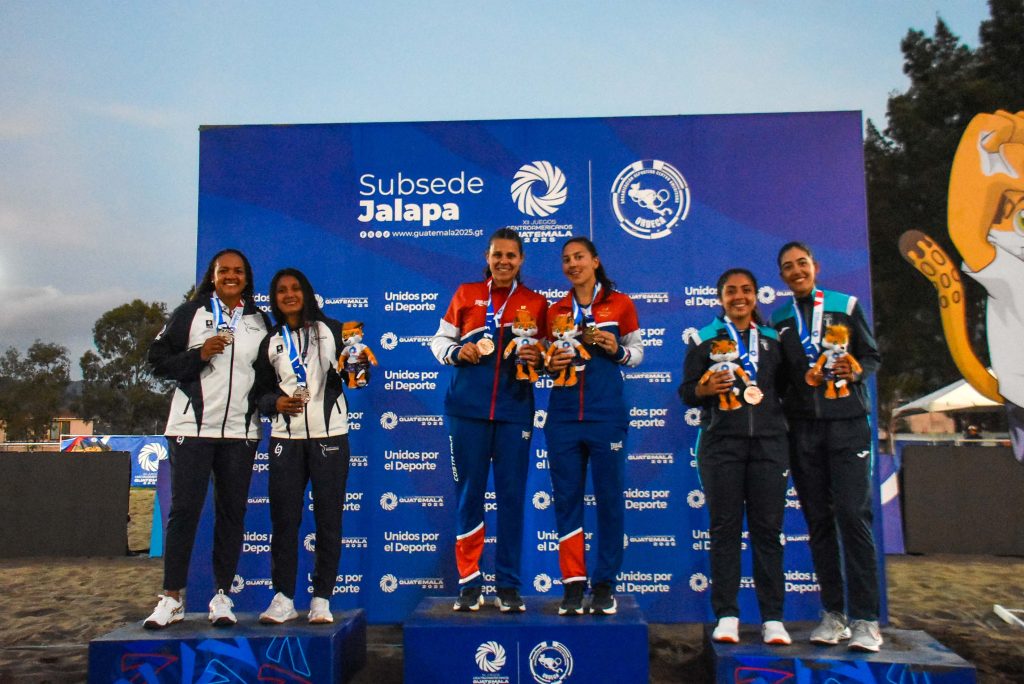
Marcela Araya/Eugenia Ramírez of Costa Rica Impeccable, Win the Central American Games
Oct 28, 2025
JALAPA, Guatemala, October 28, 2025. –Marcela Araya and Eugenia Ramírez of Costa Rica were flawless throughout the women’s beach volleyball tournament at the XII Central American Games Guatemala 2025, remaining undefeated and not dropping a single set on their way to the gold medal. The Costa Rican duo claimed the championship title after defeating Nicaragua’s […]
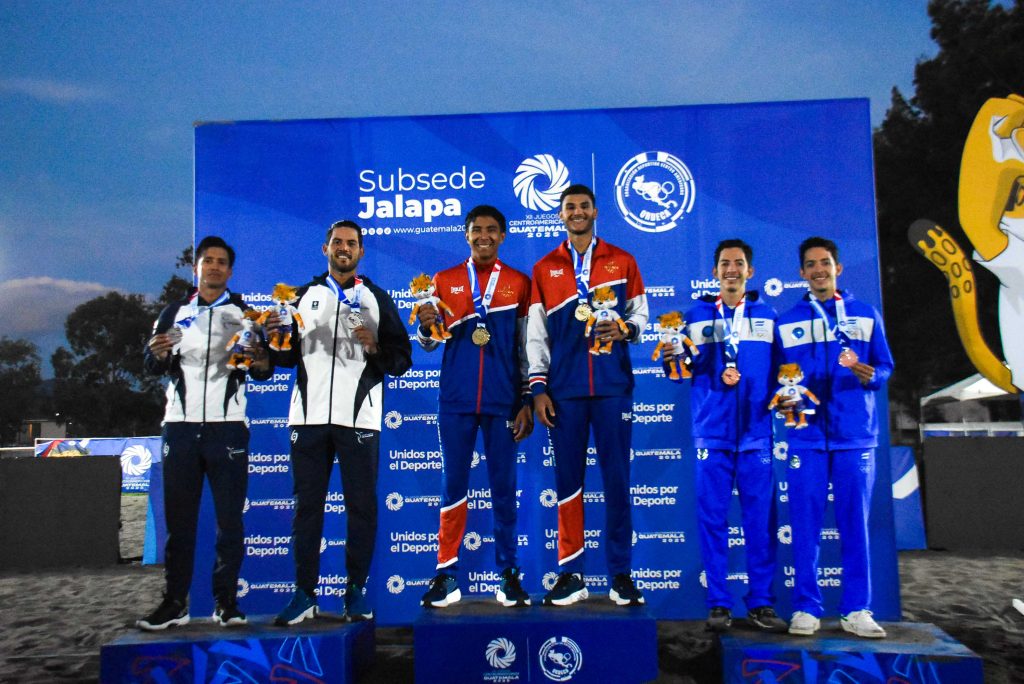
Julián Araya and Jhostin Varela of Costa Rica, New Central American Games Champions
Oct 28, 2025
JALAPA, Guatemala, October 28, 2025. – Costa Ricans Julián Araya and Jhostin Varela were crowned the new men’s beach volleyball champions of the XII Central American Games Guatemala 2025, after an exciting comeback victory over Nicaragua’s Rubén Mora and Dany López by 2-1 (17-21, 21-17, 15-13) at the Jalapa Sports Complex. This is Costa Rica’s […]
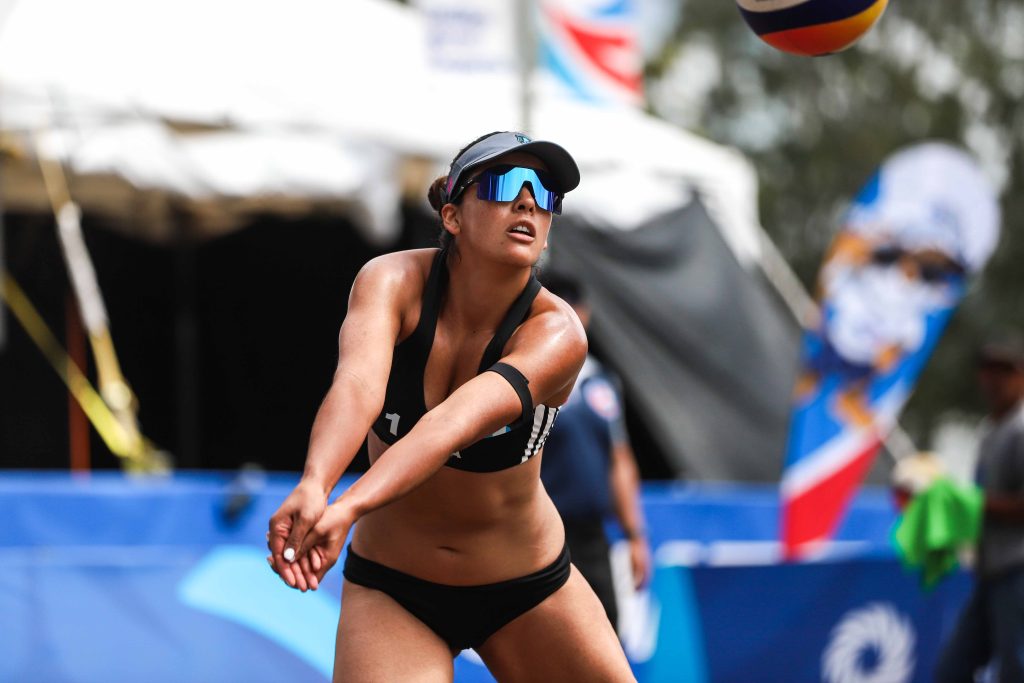
Costa Rica to Face El Salvador and Nicaragua to Meet Guatemala in Women’s Semifinals at the Central American Games
Oct 27, 2025
JALAPA, Guatemala, October 27, 2025.– Costa Rica against El Salvador and Nicaragua alongside Guatemala will be the women’s beach volleyball semifinal matchups at the XII Central American Games Guatemala 2025, scheduled to begin this Tuesday at 9:00 a.m. at the Jalapa Sports Complex. The day will open with Marcela Araya and Eugenia Ramírez of Costa […]
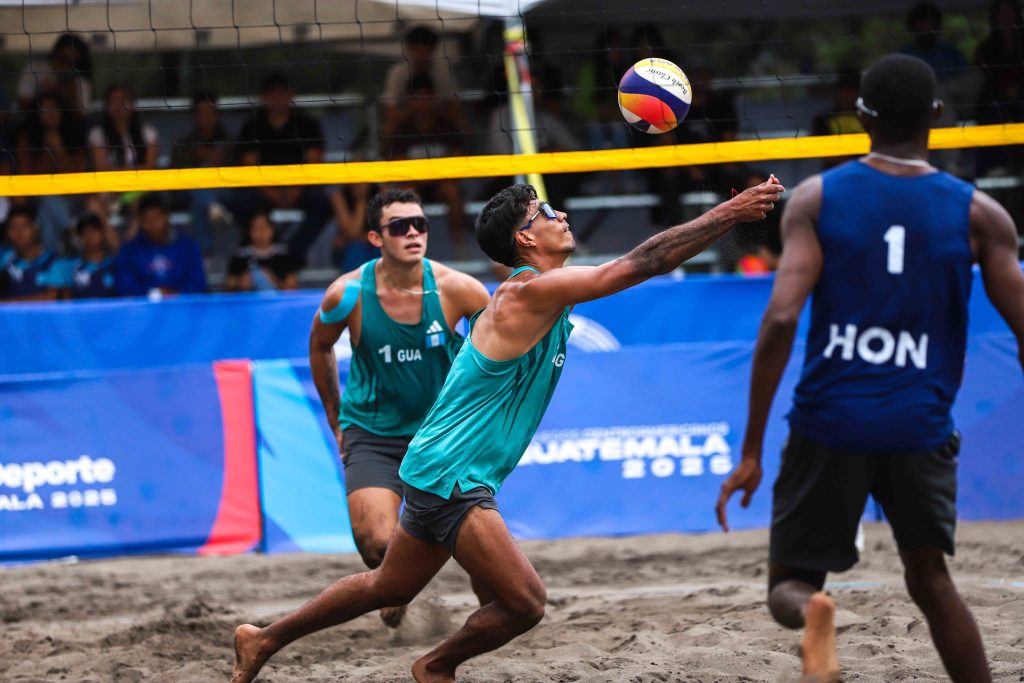
Men’s Semifinals Set at the Central American Games: Costa Rica & Guatemala and El Salvador & Nicaragua
Oct 27, 2025
JALAPA, Guatemala, October 27, 2025.– The men’s beach volleyball semifinals of the XII Central American Games Guatemala 2025 will take place this Tuesday at the Jalapa Sports Complex, featuring matchups between Costa Rica and Guatemala, and El Salvador and Nicaragua. The first semifinal is scheduled for 11:00 a.m., with Julián Araya and Jhostin Varela of […]
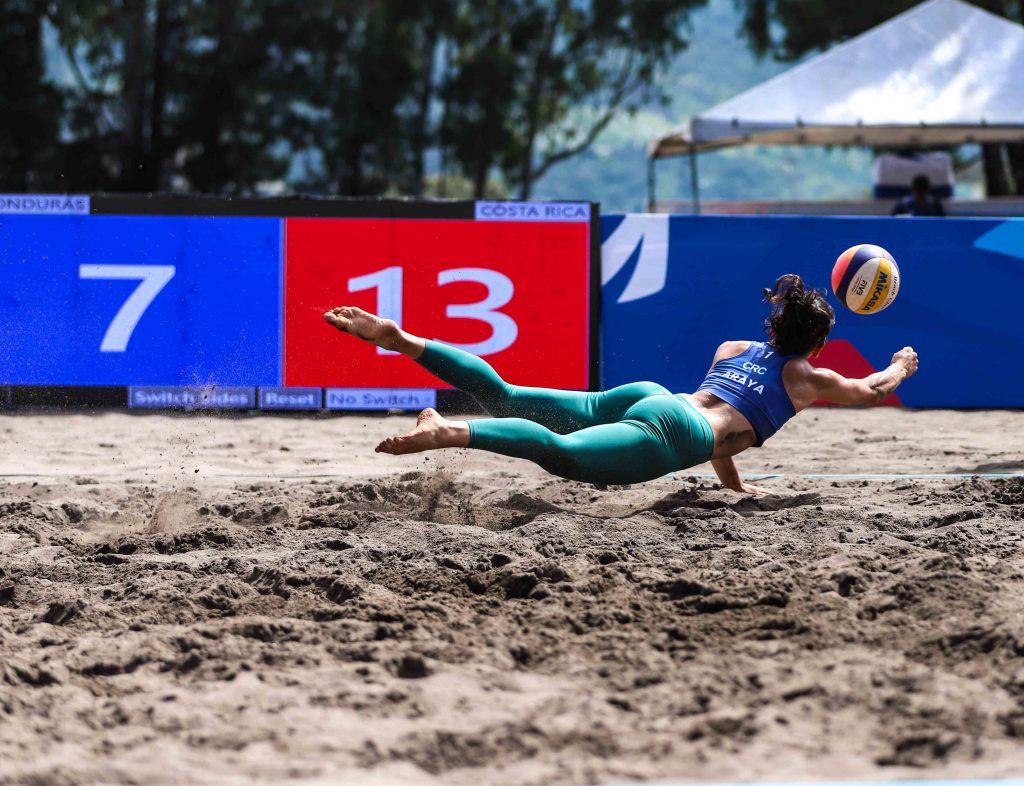
Costa Rica’s Duo Ramírez/Araya Take the Lead at the Central American Games
Oct 26, 2025
JALAPA, Guatemala, October 26, 2025.– The Costa Rican duo of Eugenia Ramírez and Marcela Araya claimed first place in the women’s beach volleyball standings at the 12th Central American Games Guatemala 2025, taking place at the Jalapa Sports Complex. After the penultimate day of preliminary round action, Ramírez/Araya lead the competition with a perfect 5-0 […]
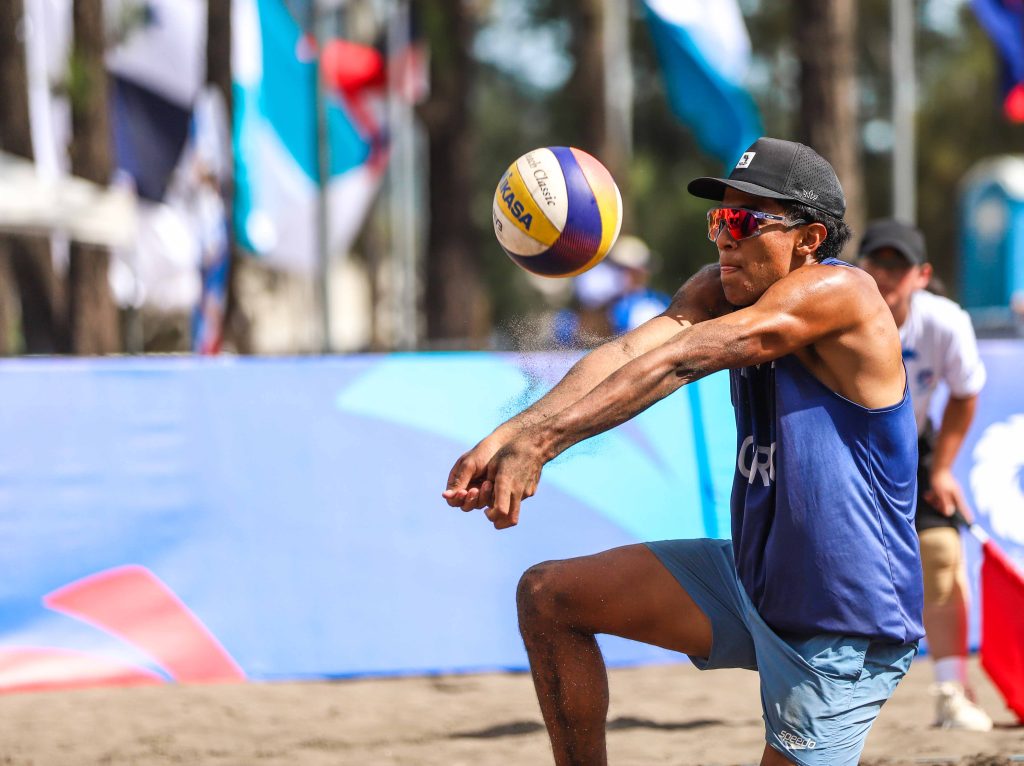
Julián Araya and Jhostin Varela Unstoppable at the Central American Games
Oct 26, 2025
JALAPA, Guatemala, October 26, 2025.– Costa Rica’s Julián Araya and Jhostin Varela remain unstoppable in the men’s beach volleyball tournament at the 12th Central American Games Guatemala 2025, after earning their fifth consecutive victory to stay at the top of the standings. With a perfect 5-0 record, Varela/Araya lead the overall rankings, followed by Nicaragua’s […]
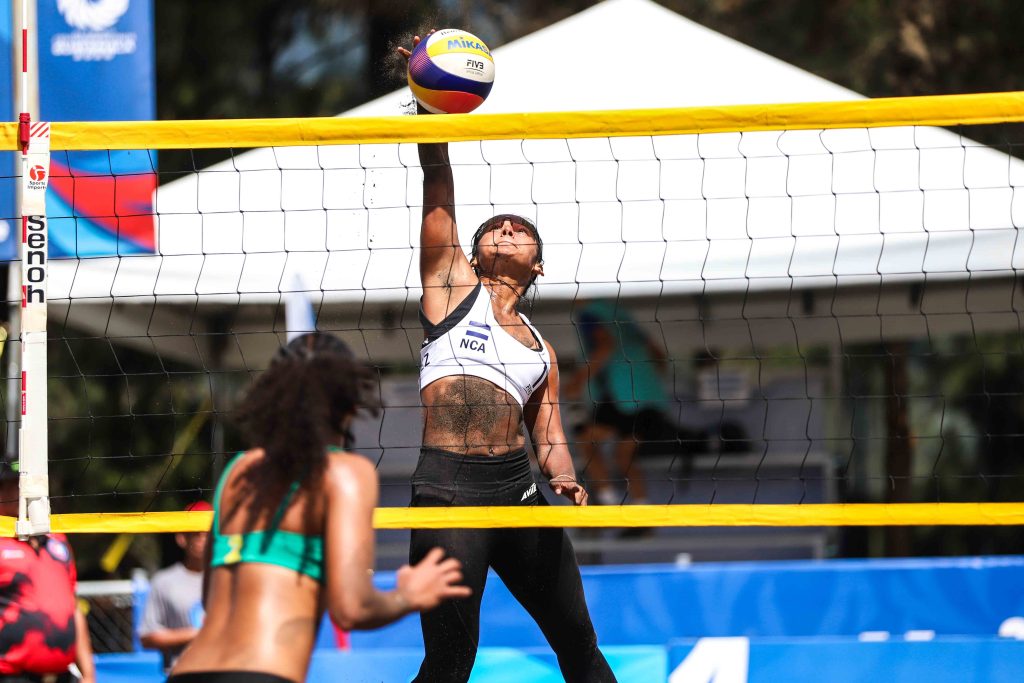
López/Rodríguez from Nicaragua Remain Undefeated with 4-0 Record at the Central American Games
Oct 25, 2025
JALAPA, Guatemala, October 25, 2025. – Nicaragua’s duo Socorro López and Lolette Rodríguez remain unstoppable in the women’s beach volleyball tournament at the 12th Central American Games Guatemala 2025, earning two more victories on Saturday to maintain a perfect 4-0 record at the Jalapa Sports Complex. With their consistent performance, López and Rodríguez sit undefeated […]
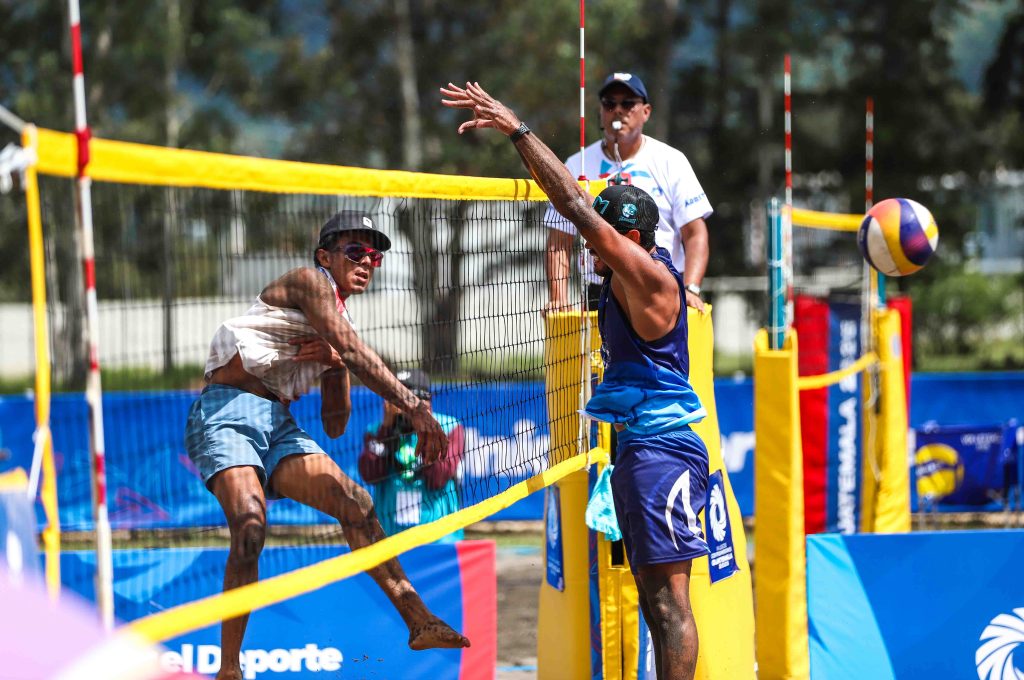
Varela/Araya from Costa Rica Remain the Only Undefeated Men’s Beach Volleyball Pair at the Central American Games
Oct 25, 2025
JALAPA, Guatemala, October 25, 2025. – Costa Rica’s duo Julián Araya and Jhostin Varela remain unstoppable in the men’s beach volleyball tournament at the 12th Central American Games Guatemala 2025, taking place at the Jalapa Sports Complex. With a perfect 3-0 record, the Costa Ricans are currently the only undefeated team in the competition. Varela […]
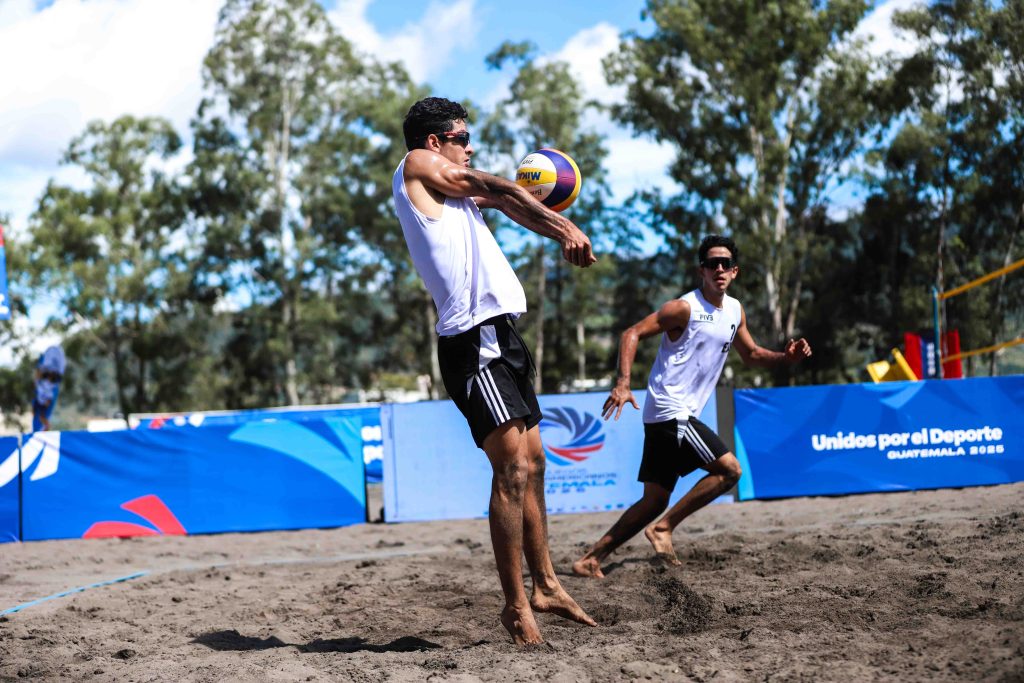
Nicaragua and El Salvador Start Central American Games Beach Volleyball with Two Victories
Oct 24, 2025
JALAPA, Guatemala, October 24, 2025.– Defending champions Rubén Mora and Dany López of Nicaragua, along with the twin duo Christopher and Yoel Guardado of El Salvador, started strong in the men’s beach volleyball tournament of the 12th Central American Games Guatemala 2025, each earning two victories on opening day at the Jalapa Sports Complex. The […]
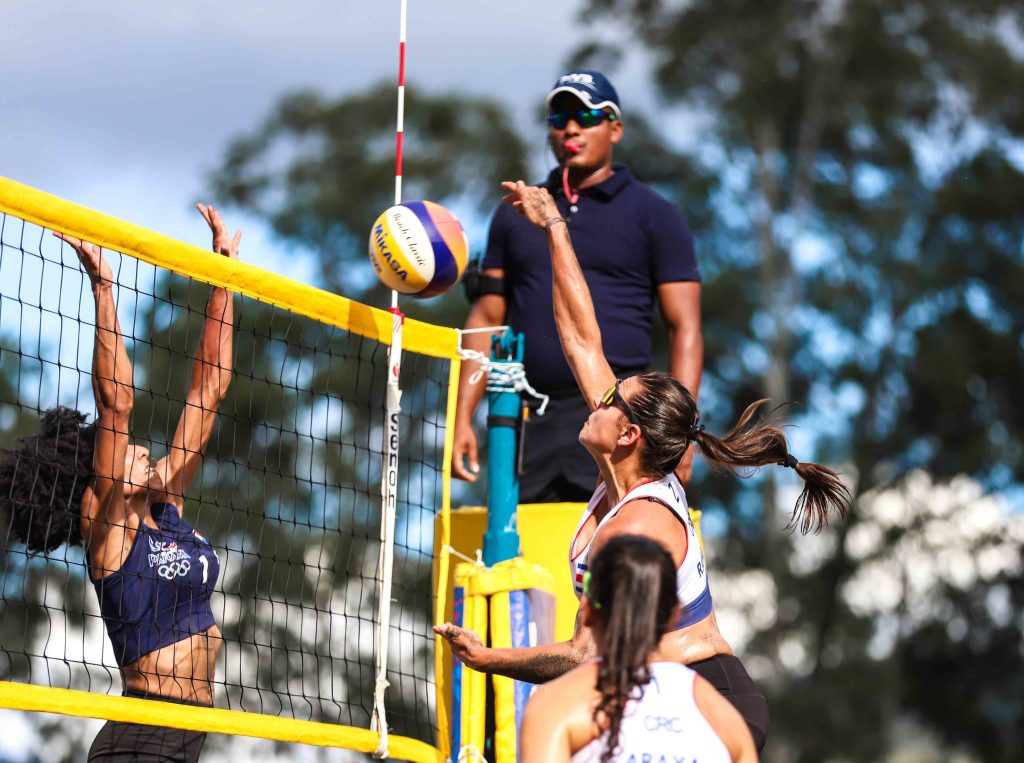
Costa Rica, Nicaragua, and Guatemala Start Strong in Central American Games Beach Volleyball
Oct 24, 2025
JALAPA, Guatemala, October 24, 2025.– Costa Rica, Nicaragua, and Guatemala began with strong performances in the women’s beach volleyball tournament of the 12th Central American Games Guatemala 2025, taking place at the Jalapa Sports Complex. Costa Rica’s Marcela Araya and Eugenia Ramírez showcased their dominance from the opening day, defeating Clara Sabal and Aliyan Pilgrim […]
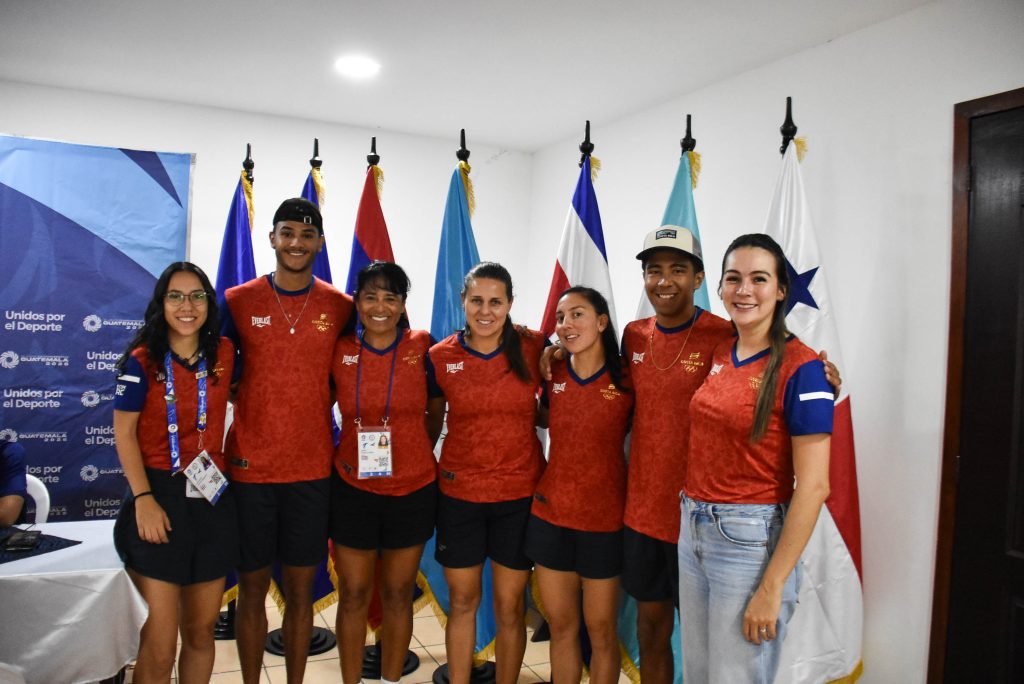
Costa Rica To Defend Women’s Beach Volleyball Title at the Central American Games
Oct 23, 2025
JALAPA, Guatemala, October 23, 2025.– Costa Rica will seek to defend its title in the women’s beach volleyball tournament at the 12th Central American Games Guatemala 2025, to be held from October 24 to 28 at the Jalapa Sports Complex. In the women’s category, Costa Rica holds the title thanks to the duo of Karen […]
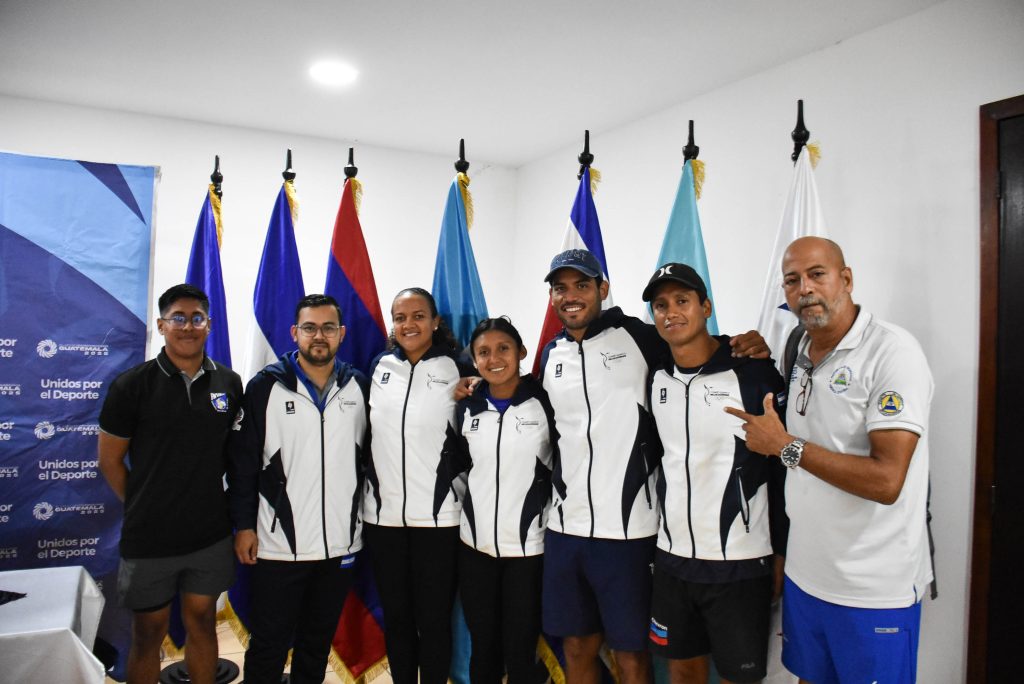
Nicaragua Seeks Third Consecutive Men’s Beach Volleyball Title at the Central American Games
Oct 23, 2025
JALAPA, Guatemala, October 23, 2025.– Nicaragua will aim to capture its third title in the men’s beach volleyball tournament of the 12th Central American Games Guatemala 2025. The duo of Rubén Mora and Dany López will look to defend their crown and maintain Nicaragua’s dominance in this discipline. Nicaragua is the reigning men’s champion, thanks […]

Beach Volleyball Athletes of the Central American Games Named Distinguished Visitors in Jalapa
Oct 23, 2025
JALAPA, Guatemala, October 22, 2025.– The athletes who will compete in the Beach Volleyball tournament of the 12th Central American Games Guatemala 2025, scheduled from October 24 to 28, were named Distinguished Visitors of the city of Jalapa. The welcoming ceremony was held in a festive atmosphere, led by Jalapa Mayor Omar Camposeco and his […]
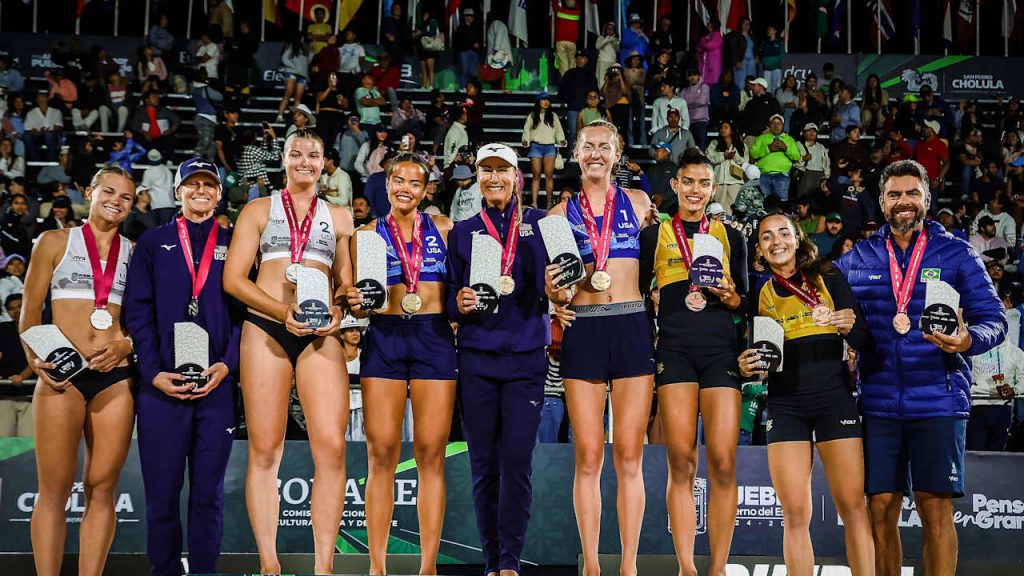
Perez & Jackson win all-American final to triumph as U21 world champions
Oct 20, 2025
PUEBLA, Mexico, October 20, 2025.- USA’s Sally Perez & Avery Jackson travelled all the way from the qualifications to the top of the women’s podium at the 2025 FIVB Beach Volleyball U21 World Championships in Puebla. In their first tournament together, they dropped only two sets in nine matches played to triumph with the world […]

Antonio Lares & Carlos Andres Ayala exhilarate the home crowd with bronze at U21 World Championship
Oct 20, 2025
PUEBLA, Mexico, Octuber 20, 2025.- Antonio Lares & Carlos Andres Ayala captured the bronze medal of the 2025 FIVB Beach Volleyball U21 World Championships in home soil, Puebla. Home heroes Antonio Lares & Carlos Andres Ayala stumbled in the semifinals for the first time in this tournament, but bounced back to claim the bronze, an […]

Guatemala Gears Up for the 12th Central American Games 2025
Oct 12, 2025
GUATEMALA CITY, Guatemala, October 12, 2025. – Guatemala is preparing to host, for the fourth time as the sole venue, the 12th edition of the Central American Games, to be held from October 18 to 30, 2025. The event will bring together athletes from Belize, El Salvador, Honduras, Nicaragua, Costa Rica, Panama, and the host […]

USA’s Scribner & Grimes crowned World U18 champions in style
Oct 11, 2025
DOHA, Qatar, October 11, 2025.- Scribner & Grimes strung together nine wins without dropping a set to win the gold medal as another American pair, Avery & Addison Junk, settled for silver. USA have retained the FIVB Beach Volleyball Under 18 World Championship title. The pair of Jordyn Scribner & Ella Grimes beat the Junk […]
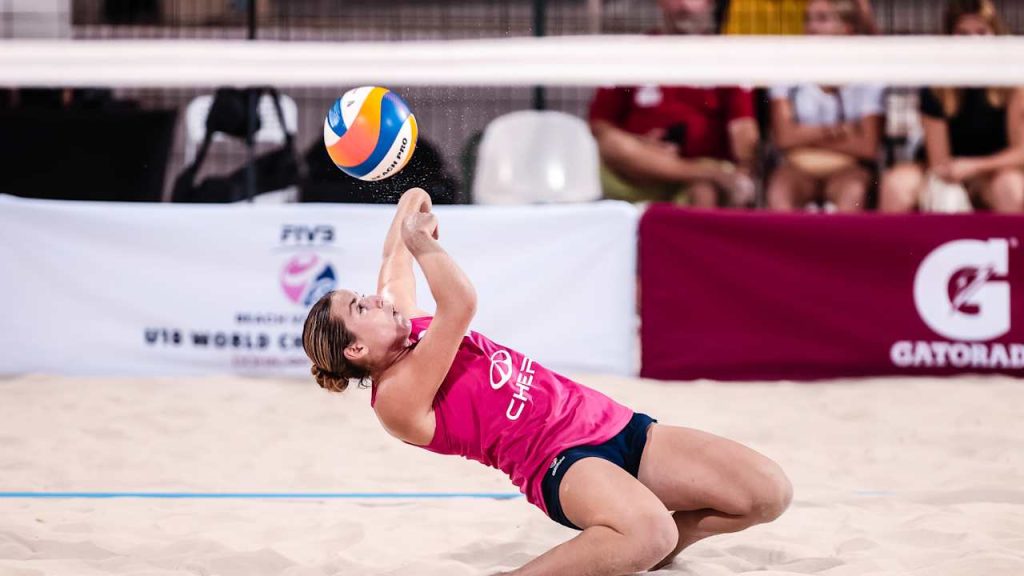
USA's girls remain unbeaten as Türkiye's boys earn historic semifinals berth in Doha
Oct 10, 2025
DOHA, Qatar, October 10, 2025.- USA’s title defense received a significant boost on Friday after their two girls’ duos qualified for the semifinals of the ongoing FIVB Beach Volleyball Under 18 World Championship in Doha, Qatar. A total of 40 matches—16 Round of 24, 16 Round of 16, and 8 quarterfinals–were played on Friday to determine the […]
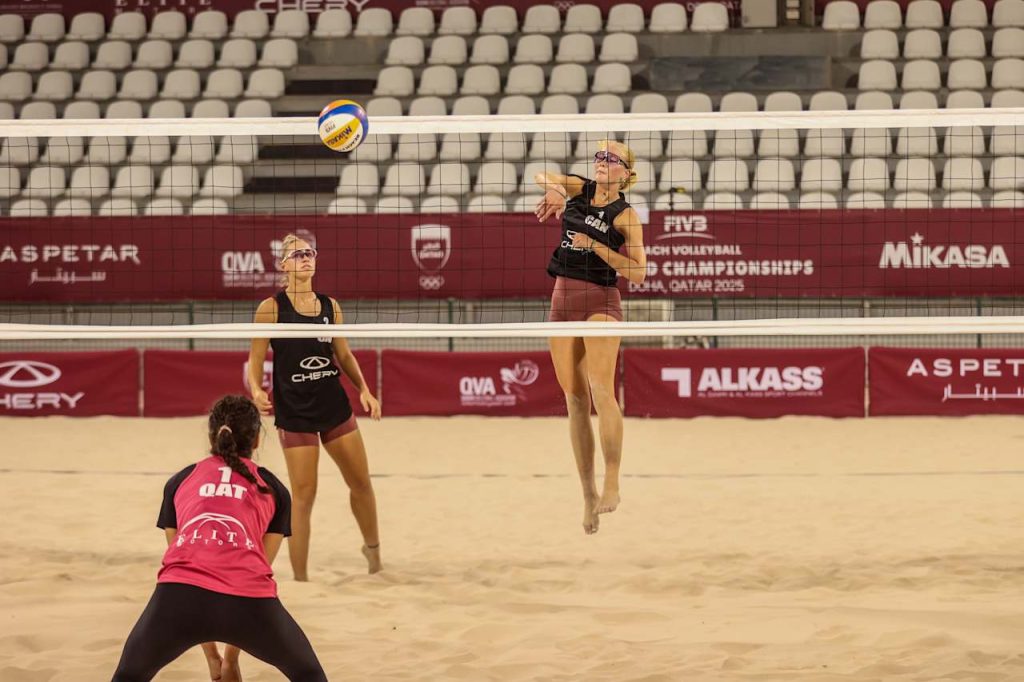
Duos from USA and Canada Qualify Directly for the Round of 16 in Doha
Oct 09, 2025
Doha, Qatar, October 9, 2025.- The two USA duos and Canada qualified for the girls’ Round of 16 with a perfect record as the Main Draw of the FIVB Beach Volleyball Under 18 World Championship concluded on Thursday in Doha, Qatar to determine the 24 teams in each gender that will participate in the elimination round. A […]
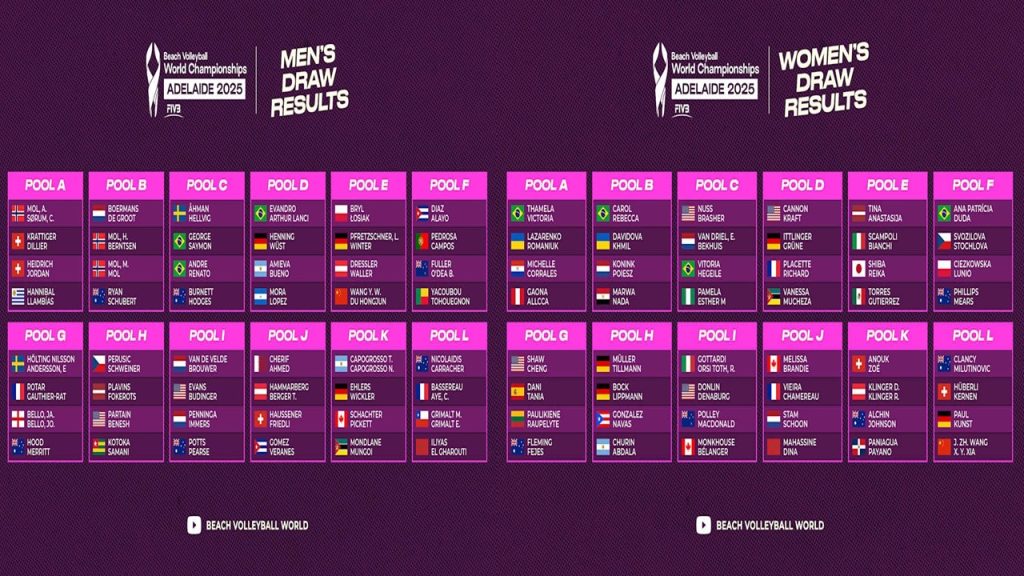
Pools set for 2025 FIVB Beach Volleyball World Championships Adelaide
Oct 09, 2025
October 9, 2025.- The stage is now set for the 2025 FIVB Beach Volleyball World Championships, with the official Drawing of Lots completed and the pools unveiled for one of the sport’s most anticipated global events. Adelaide will welcome the world’s elite beach volleyball athletes from 14-23 November 2025, with competition to be held across […]
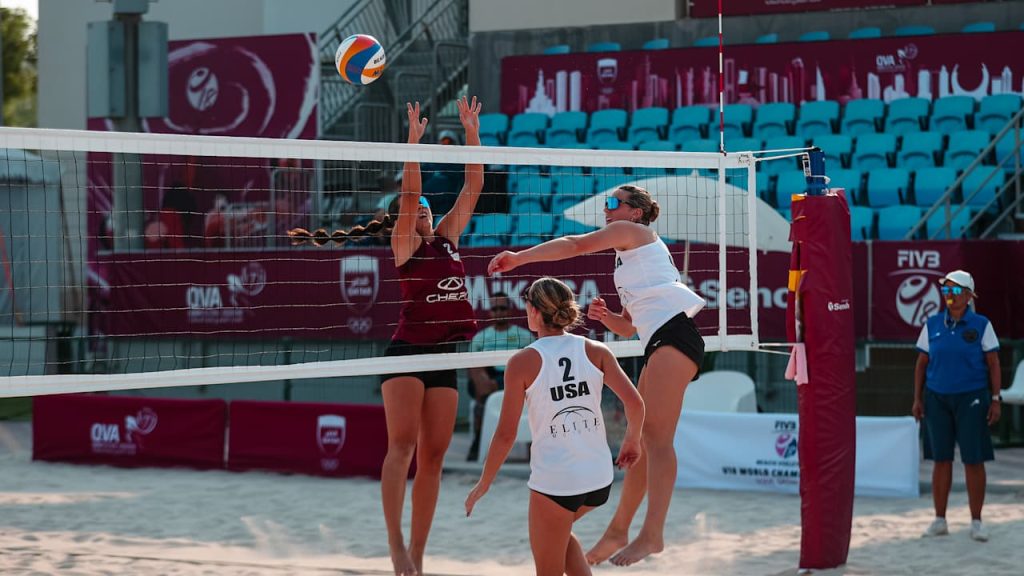
Both USA Duos and Canada confirm their place in the Girls’ Elimination Round in Doha
Oct 08, 2025
DOHA, Qatar, October 8, 2025.- The two USA girls’ duos of Avery Junk & Addison Junk and Jordyn Scribner & Ella Grimes, and Canadians Ruby Cochrane & Sophie Hancock booked an early ticket to the elimination round after winning their first two matches of the pool phase at the FIVB Beach Volleyball U18 World Championship in Doha. […]
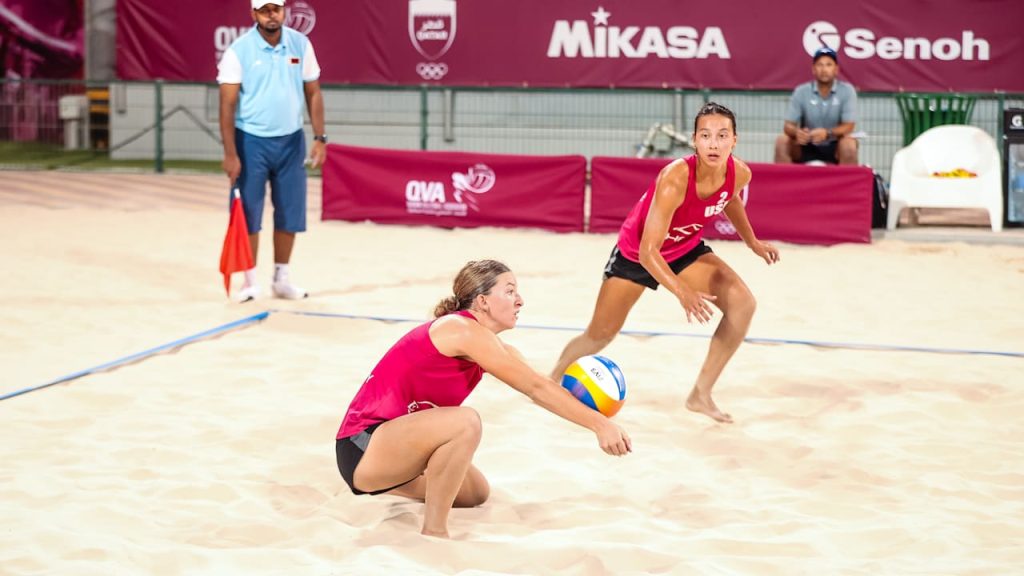
U18 Beach Volleyball World Championship in Doha
Oct 07, 2025
DOHA, Qatar, October 7, 2025.- The FIVB Beach Volleyball Under 18 World Championship is underway in Doha, Qatar with over 50 nations vying for supremacy at the Al Gharafa Beach Courts. This is the first FIVB Beach Volleyball U18 World Championship in more than 20 years and it’s the first time that the competition is […]

FIVB and Cuban sports leaders meet to chart sustainable return of Cuba’s volleyball golden age
Oct 06, 2025
October 3, 2025.- The FIVB and representatives from the International Olympic Committee (IOC) met this week with the Cuban Olympic Committee (COC) and the Cuban Volleyball Federation (FCV) to discuss long-term strategies for boosting volleyball development in the country. The meeting brought together COC President Roberto León Richards Aguiar and Secretary General Ruperto Herrera Tabío, […]
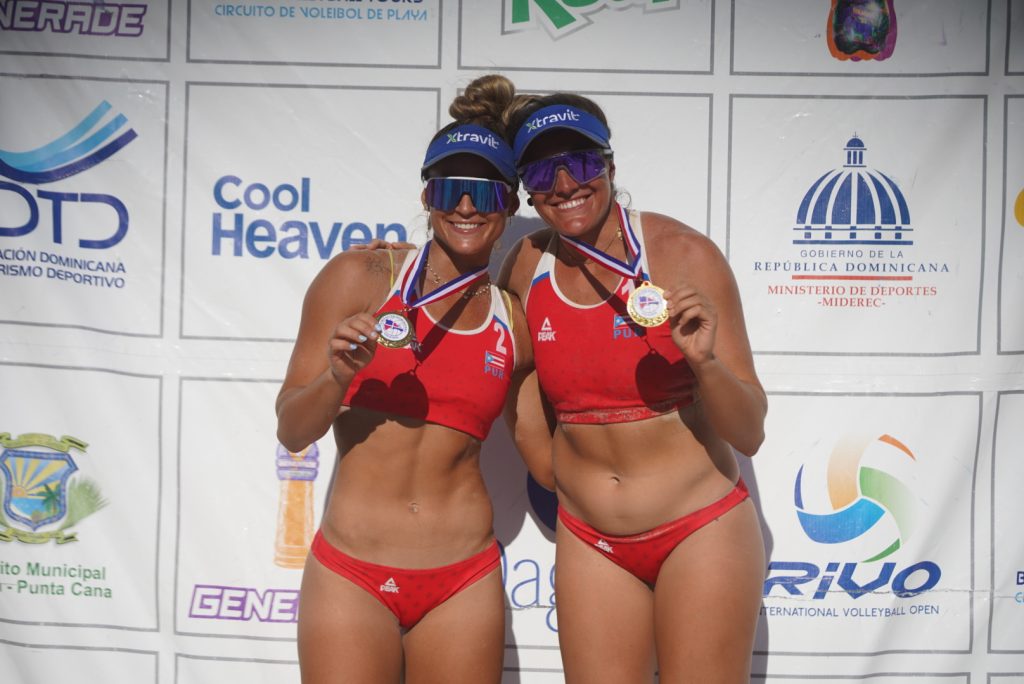
Puerto Ricans Navas/Gonzalez paint themselves with gold in Punta Cana
Sep 29, 2025
PUNTA CANA, Dominican Republic, September 28, 2025 – Puerto Rican duo María González/Allanis Navas defeated Americans Geena Urango/Mariah Whalen (USA1) in a thrilling three-set victory 2-1 (19-21, 21-17, 15-10) to win the gold medal at the ninth stop of the NORCECA Continental Beach Volleyball Tour, which concluded successfully at Los Corales Beach in Punta Cana, […]
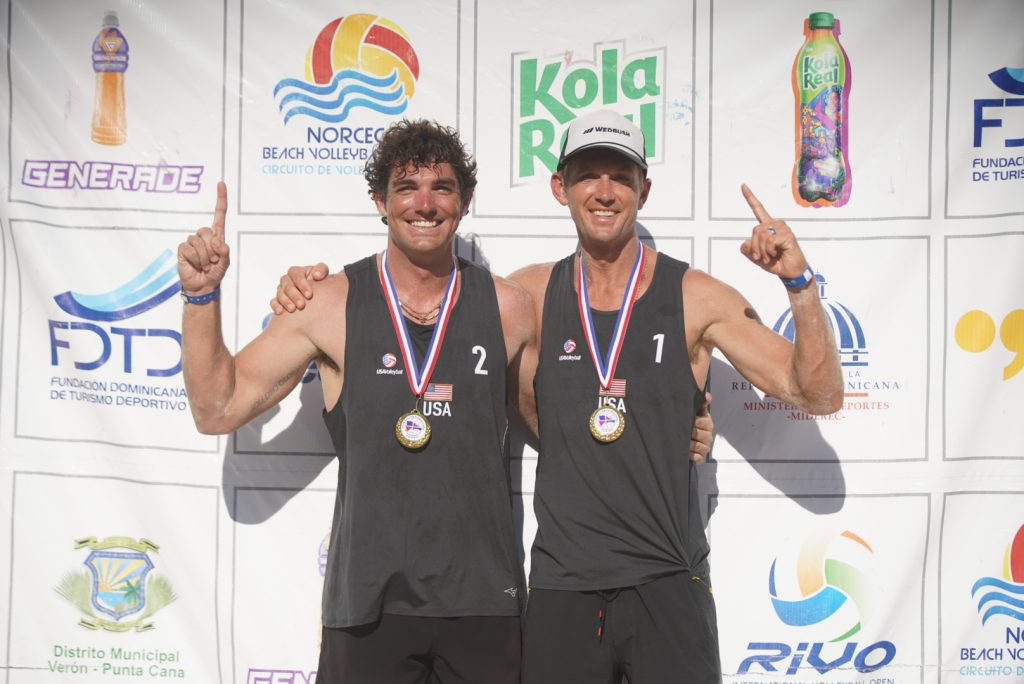
James Drost and Troy Field Win Gold on NORCECA Punta Cana Tour
Sep 28, 2025
PUNTA CANA, Dominican Republic, September 28, 2025 – Americans James Drost and Troy Field defeated Cuban duo Damián Gómez and Eblis Veranes in a nail-biting three-set match 2-1 (19-21, 21-18, 15-10) to win the gold medal in the ninth leg of the NORCECA Continental Beach Volleyball Tour, which concluded this Sunday in Punta Cana, Dominican […]
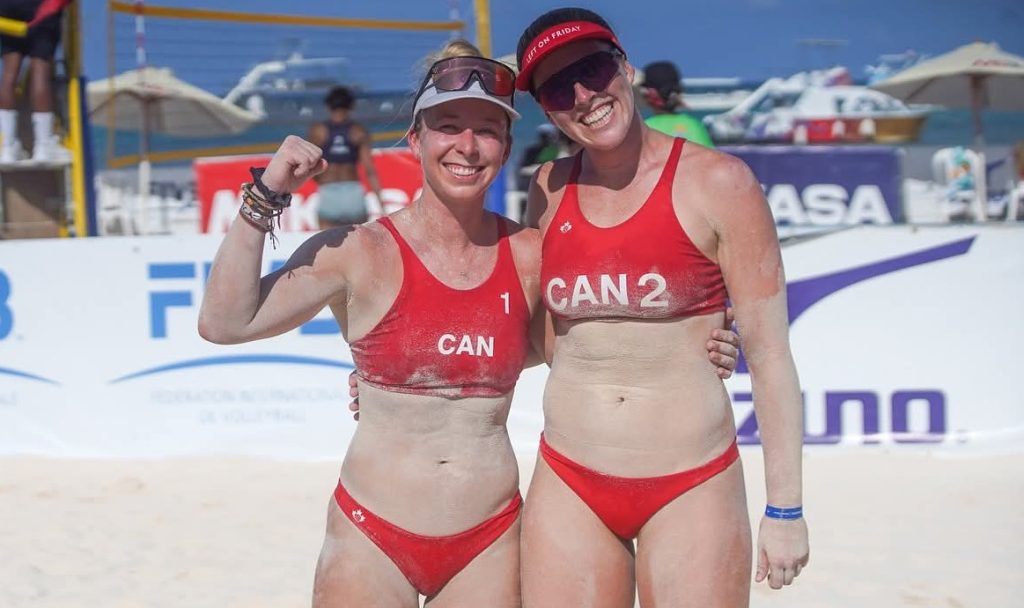
Women's teams from Puerto Rico, the United States, Canada, and Costa Rica advance to the semifinals in Punta Cana
Sep 27, 2025
PUNTA CANA, Dominican Republic, September 27, 2025.- The women’s teams from Puerto Rico, the United States, Canada, and Costa Rica advanced this Saturday to the semifinals of the ninth leg of the NORCECA Continental Beach Volleyball Tour, which is being held on the sand courts at Los Corales Beach in Punta Cana, Dominican Republic. Puerto […]
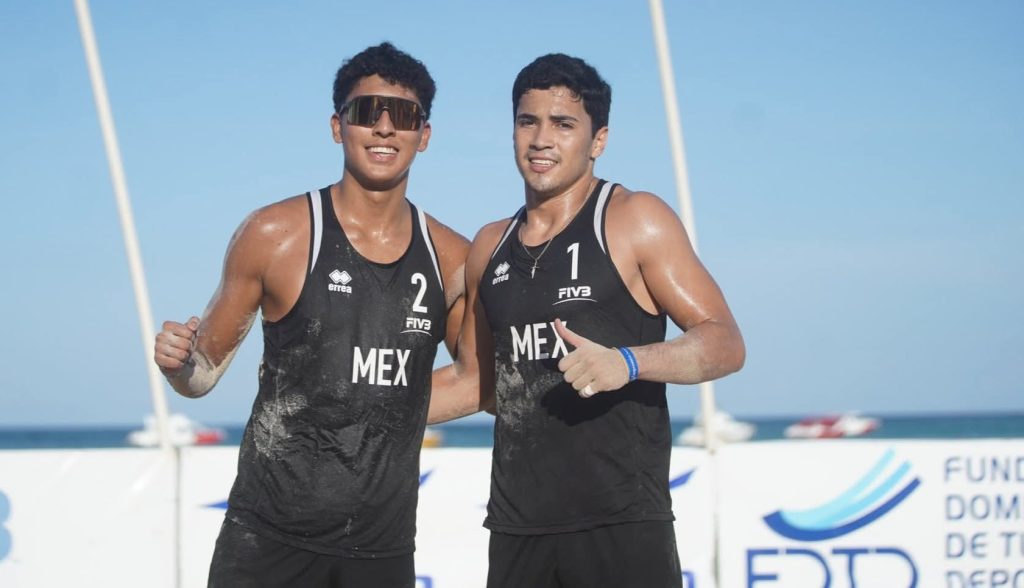
Nicaragua, Cuba, United States, and Mexico Advance to Men's Semifinals on NORCECA Tour
Sep 27, 2025
PUNTA CANA, Dominican Republic, September 27, 2025 – The men’s teams of Nicaragua, Cuba, the United States, and Mexico advanced to the semifinals of the ninth stage of the NORCECA Continental Beach Volleyball Tour, being played at Los Corales Beach in Punta Cana. Nicaragua’s Rubén Mora and Dany López defeated Dominicans Melvin de Jesús/Ramón de […]
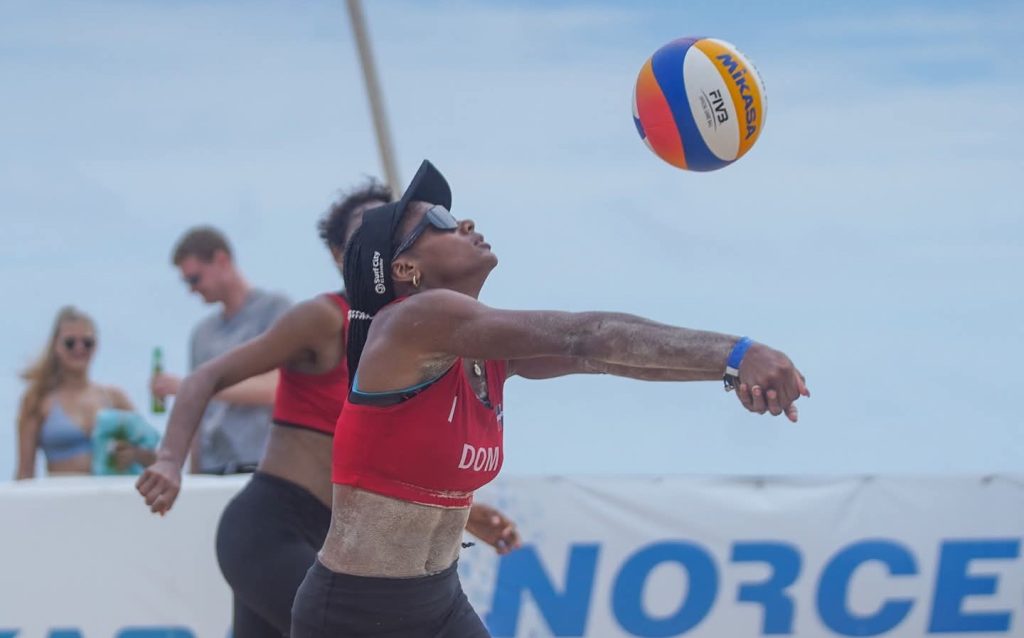
Women's duos from six countries undefeated in Punta Cana
Sep 26, 2025
PUNTA CANA, Dominican Republic, September 26, 2025 – The teams from Nicaragua, the Dominican Republic, Costa Rica, Canada, Mexico, and Puerto Rico won their respective matches on the first day of competition at the ninth stop of the NORCECA Continental Beach Volleyball Tour, at Los Corales Beach in Punta Cana. In Group A, Dominicans Julibeth […]
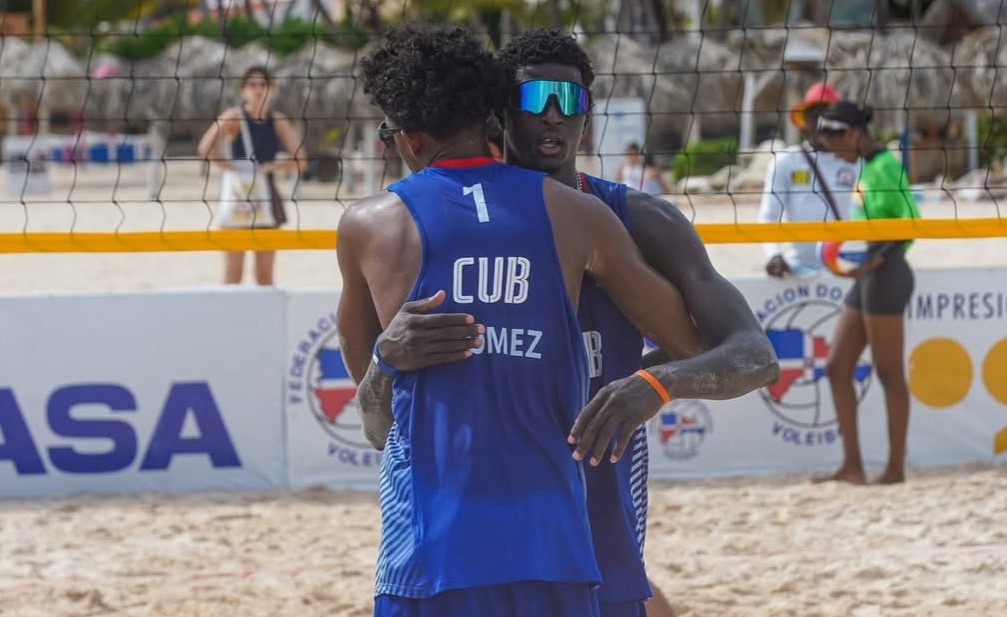
Six men's teams undefeated on Punta Cana Continental Tour
Sep 26, 2025
PUNTA CANA, Dominican Republic, September 26, 2025 – The teams from the Dominican Republic, Nicaragua, Mexico, Venezuela, Canada, and Cuba finished undefeated the first day of competition of the ninth leg of the 2025 NORCECA Beach Volleyball Continental Tour undefeated, held at Los Corales Beach in Punta Cana, Dominican Republic. In Group A, the pairing […]
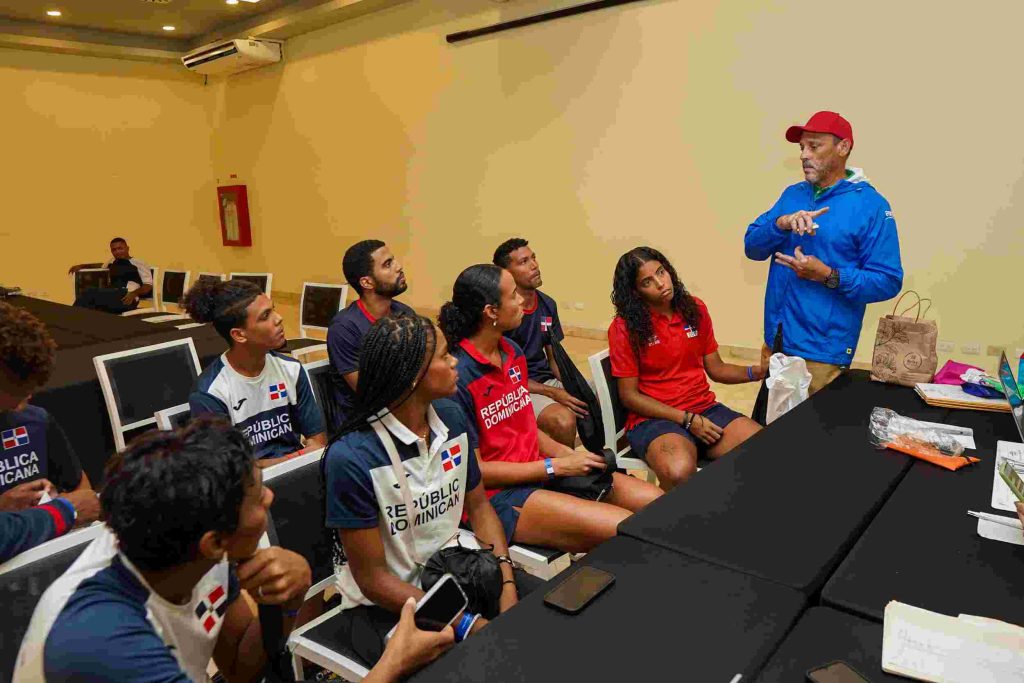
Teams from 15 Countries to See Action in Punta Cana
Sep 25, 2025
PUNTA CANA, Dominican Republic, September 25, 2025.– A total of 15 countries will see action in the ninth stop of the NORCECA Beach Volleyball Continental Tour, which kicks off this Friday on the sand courts set up at Los Corales Beach in Punta Cana, Dominican Republic. Fifteen pairs per gender confirmed their participation in the […]
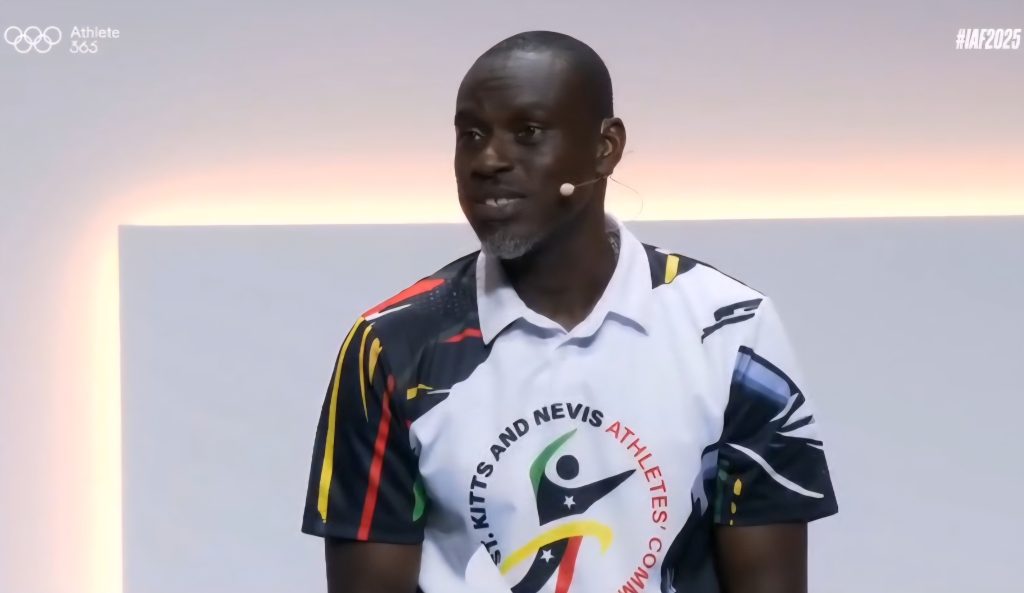
St. Clair Hodge Selected for FIVB’s “Beyond the Sport” Global Athlete Program
Sep 25, 2025
BASSETERRE, St. Kitts and Nevis. September 23, 2025. St. Kitts and Nevis’ own St. Clair Hodge has been selected as a member of the inaugural cohort of the FIVB (International Volleyball Federation) Volleyball Athletes’ Commission’s “Beyond the Sport” Program. The prestigious initiative, which runs from October 6–10 in Lausanne, Switzerland, is designed to support volleyball […]
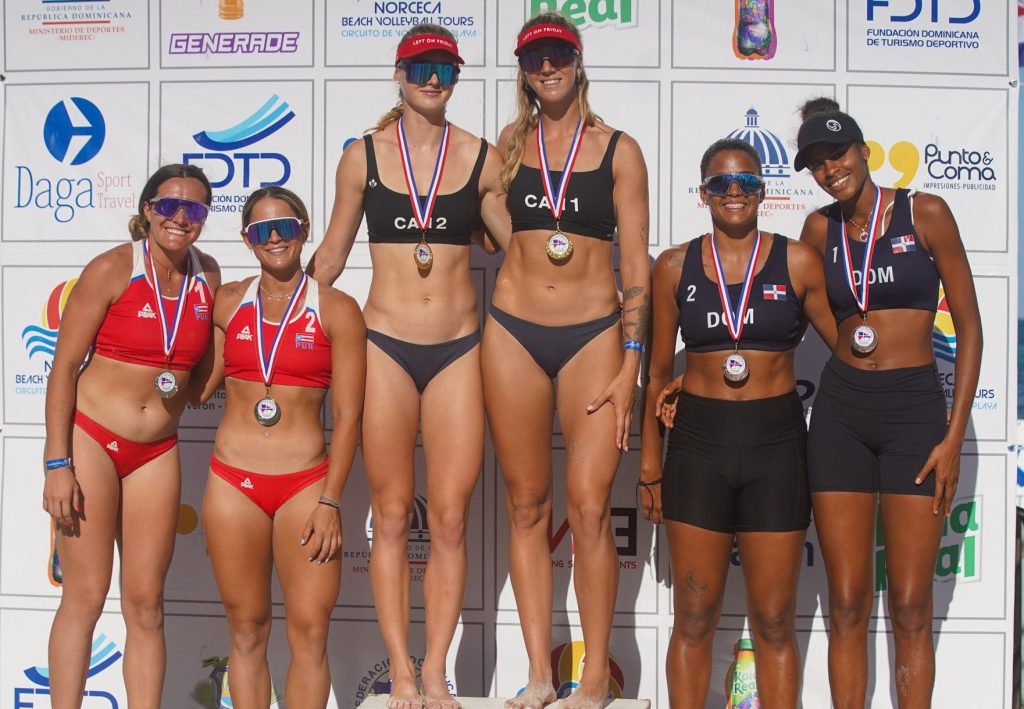
Marie-Alex Belanger and Lea Monkhouse win Gold in Punta Cana
Sep 21, 2025
PUNTA CANA, Dominican Republic, September 21, 2025.- Canadians Marie-Alex Belanger and Lea Monkhouse defeated Puerto Ricans María González and Allanis Navas 2-1 (14-21, 21-17, 16-14) to win gold in the NORCECA 2025 World Beach Championships Qualifying Tournament, which concluded this Sunday at Los Corales Beach in Punta Cana, Dominican Republic. Belanger and Monkhouse defeated Dominicans […]
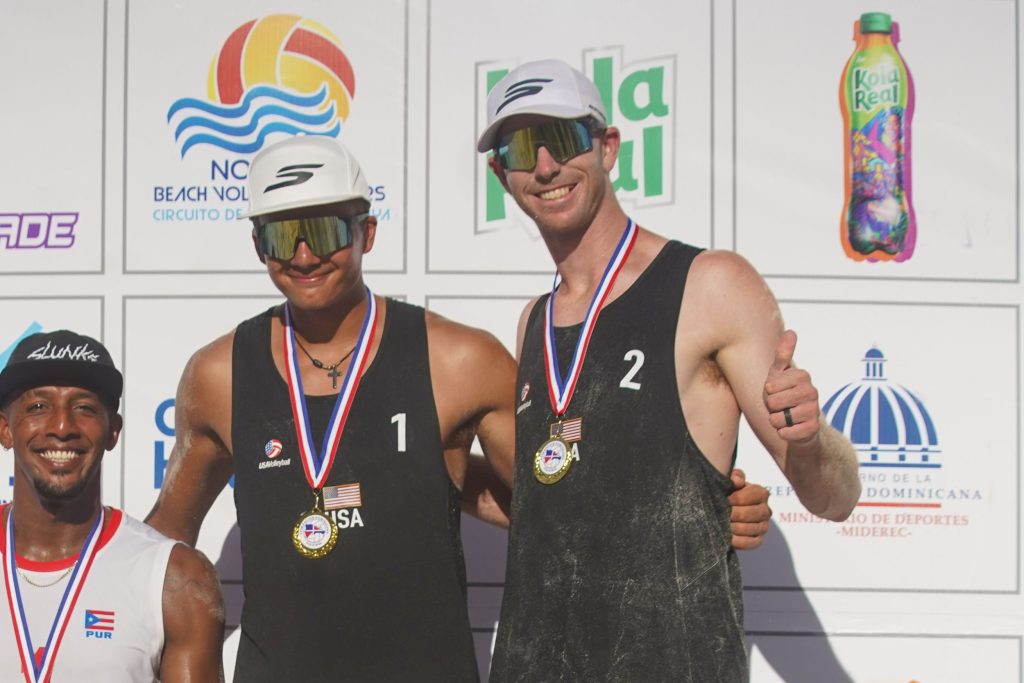
Partain/Benesh take gold in Punta Cana Qualifier
Sep 21, 2025
PUNTA CANA, Dominican Republic, September 21, 2025.- The United States duo of Miles Partain and Andrew Benesh defeated Puerto Ricans Cristian Encarnación and Diego Rosich in straight sets 2-0 (21-13, 21-17) to win the gold medal in the NORCECA 2025 Beach World Championship Qualifying Tournament played on the sand courts installed on Los Corales beach […]
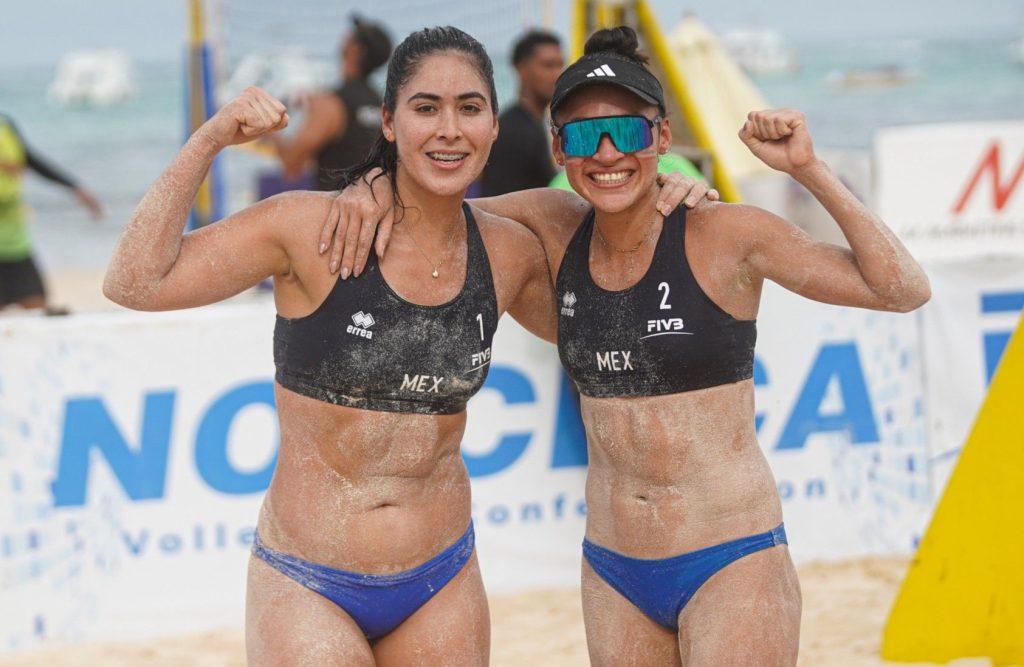
Dominican Republic, Canada, Puerto Rico, and Mexico secure their ticket to the World Cup
Sep 20, 2025
PUNTA CANA, Dominican Republic, September 20, 2025.- The women’s teams from the Dominican Republic, Canada, Puerto Rico and Mexico advanced this Saturday to the Semifinals of the NORCECA 2025 Beach Volleyball World Cup Qualifying Tournament being held in Punta Cana, Dominican Republic, securing this way their ticket to the World Cup, which will take place […]
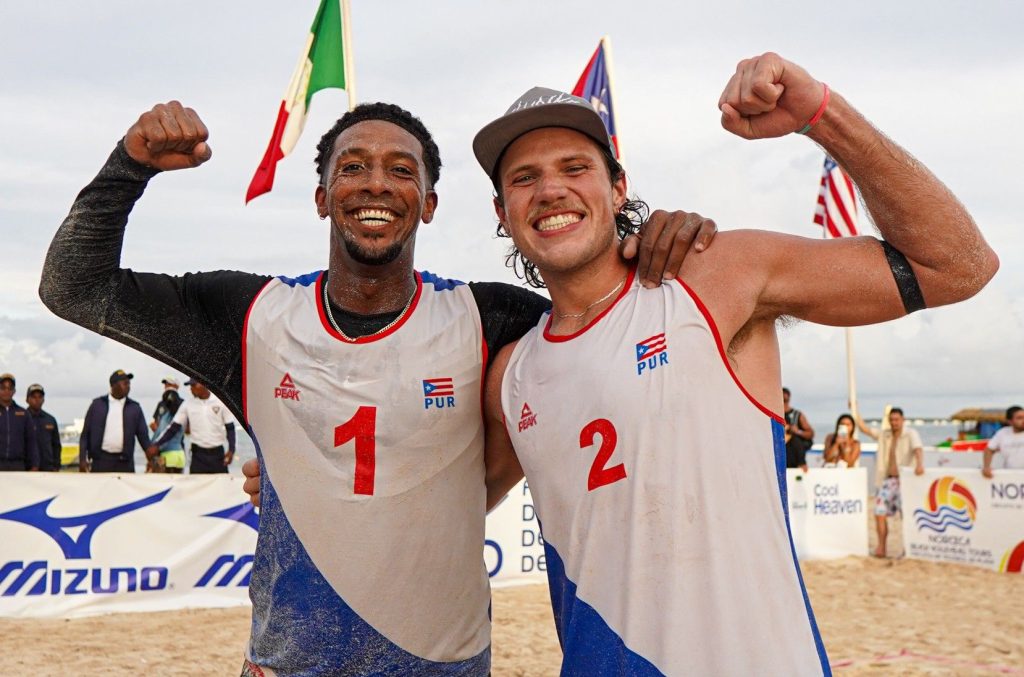
United States, Canada, Puerto Rico, and Nicaragua advance to Semifinals in Punta Cana
Sep 20, 2025
PUNTA CANA, Dominican Republic, September 20, 2025 – The pairs of USA Miles Partain/Andrew Benesh, CAN Samuel Schachter/Jonathan Pickett, PUR Cristian Encarnación/Diego Rosich, and NCA Rubén Mora/Dany López advanced to the Semifinals of the NORCECA 2025 Beach World Championship Qualifiers, which is being successfully held on the sand courts located at Los Corales Beach in […]
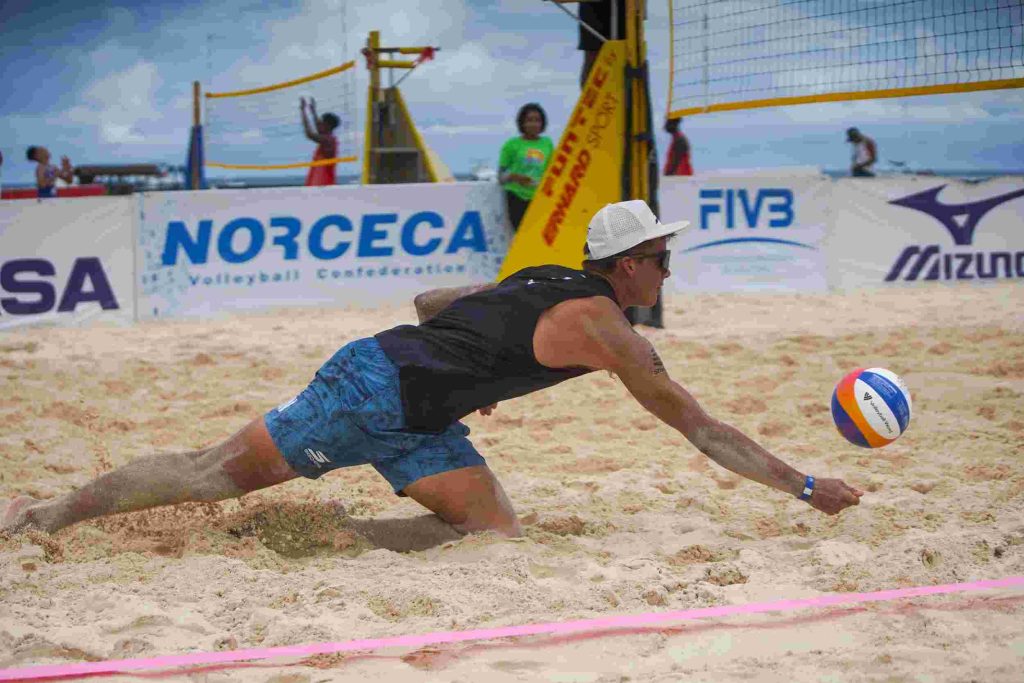
Cuban, United States, and Canadian men's teams undefeated in Punta Cana
Sep 19, 2025
PUNTA CANA, Dominican Republic, September 19, 2025 – The Cuban, Canadian, and United States men’s teams won both matches on the opening day of the NORCECA 2025 World Beach Championship Qualifiers, being played on the sand courts at Los Corales Beach on the coast of Punta Cana, Dominican Republic. In Group A, Cubans Damián Gómez […]
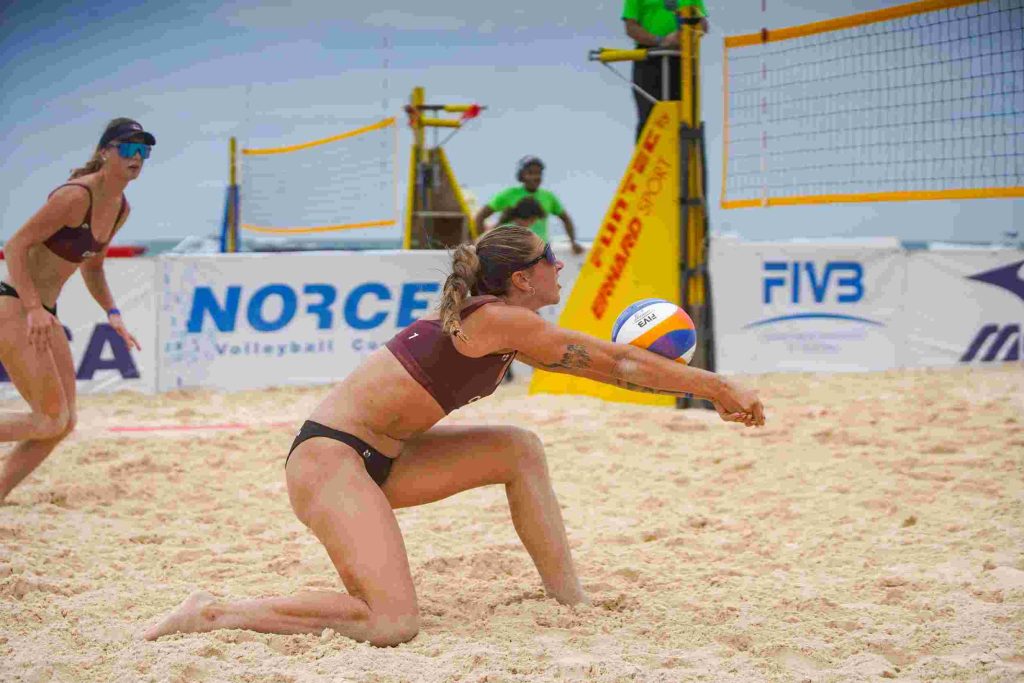
Four women's teams start undefeated in Punta Cana
Sep 19, 2025
PUNTA CANA, Dominican Republic, September 19, 2025 – The women’s teams from the Dominican Republic, the Virgin Islands, Canada, and Cuba started undefeated at the NORCECA 2025 Beach Volleyball World Championship Qualifying Tournament held at Los Corales Beach in Punta Cana, Dominican Republic. In Pool C, Dominicans Yari Cleto and Julibeth Payano easily defeated Deajra […]
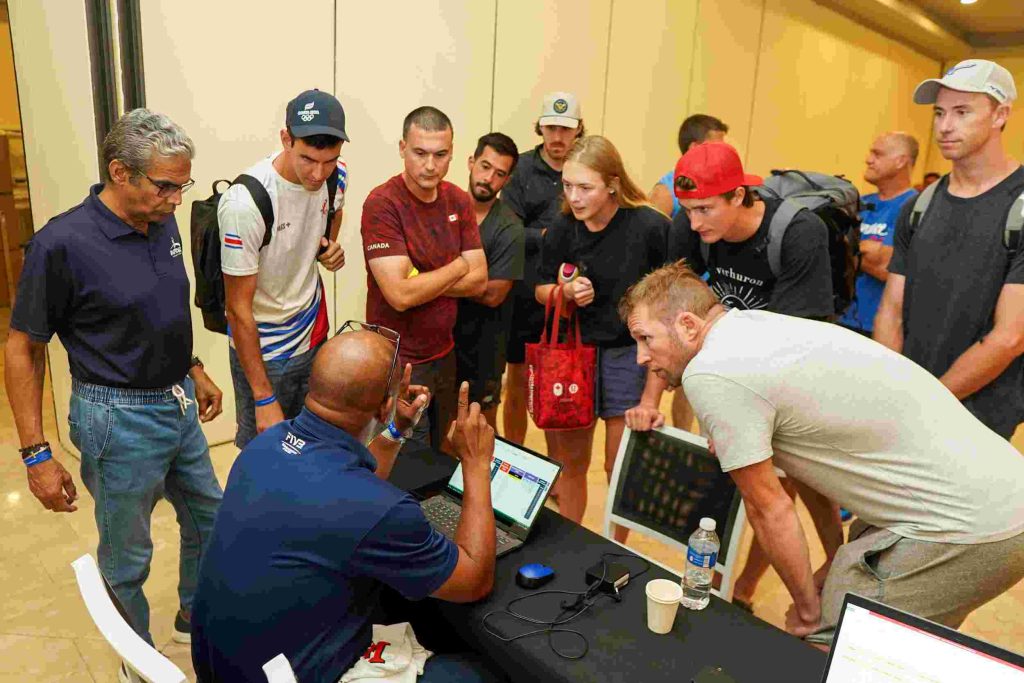
21 teams will see action in the Beach Volleyball World Championship Qualifying Tournament in Punta Cana
Sep 18, 2025
PUNTA CANA, Dominican Republic, September 18, 2025. – A total of 21 teams from 12 different countries will compete in the NORCECA 2025 Beach Volleyball World Championship Qualifying Tournament, which will take place from September 19 to 21 on the sand courts located on Punta Cana Beach, Dominican Republic. Twelve men’s and 10 women’s teams […]
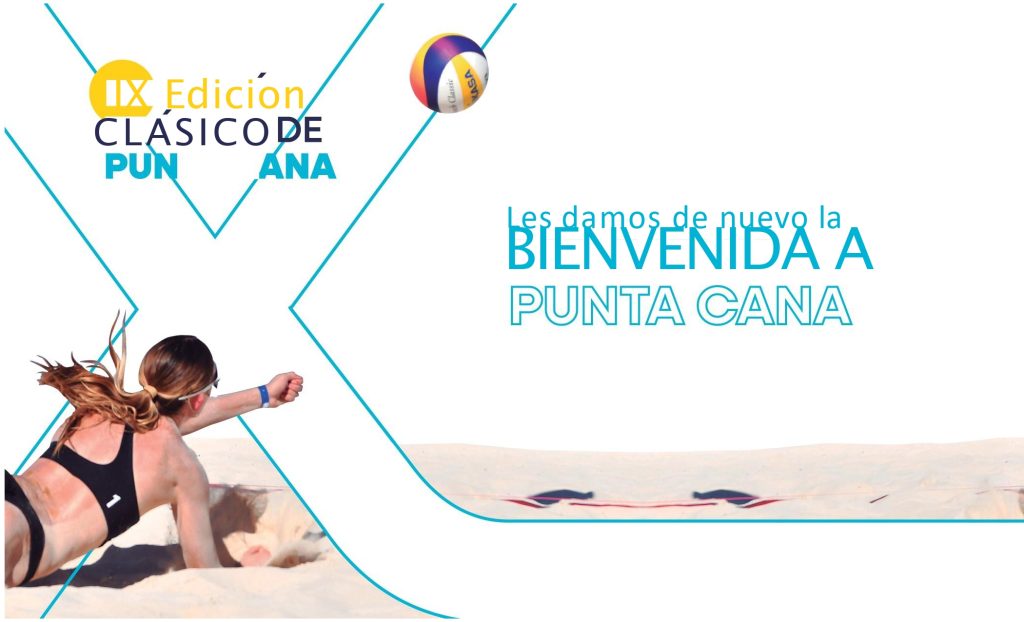
NORCECA Joins World Beach Clean-Up Day in Punta Cana
Sep 18, 2025
PUNTA CANA, Dominican Republic, September 18, 2025. – The NORCECA Volleyball Confederation and its Beach Volleyball Department join the World Beach Clean-Up Day in support of the Ministry of Environment of the Dominican Republic. In commemoration of this global initiative, all participating teams of the NORCECA Beach Volleyball World Championship Qualification Tournament are invited to […]
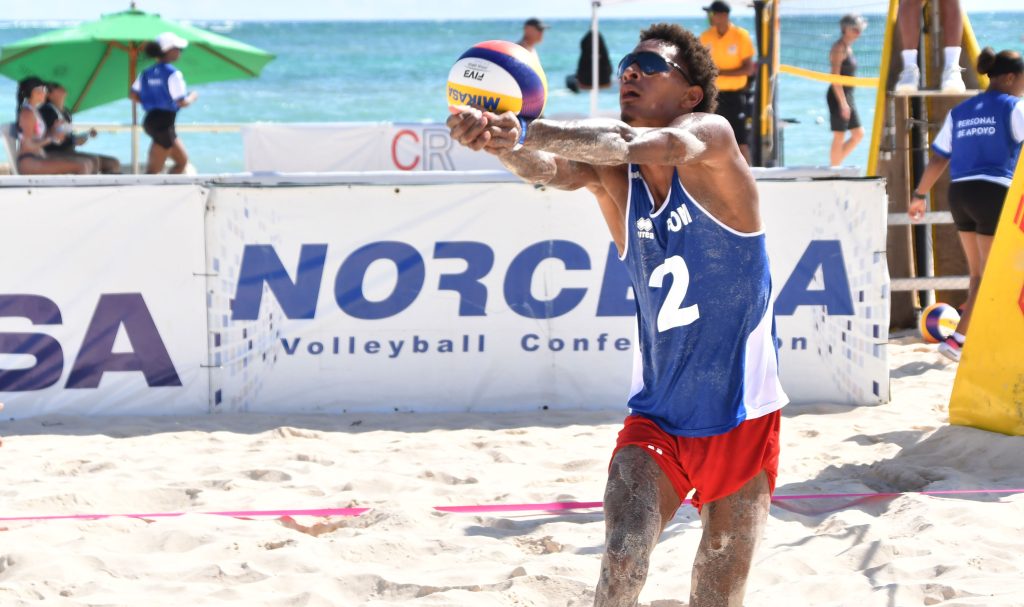
World Championship Qualifier Tournament to Be Held in Punta Cana
Sep 17, 2025
PUNTA CANA, Dominican Republic, September 17, 2025. – Punta Cana will host the NORCECA Qualifier Tournament for the 2025 FIVB Beach Volleyball World Championship, taking place from September 19 to 21, where the best pairs from the region will compete to secure their spot at the world event. A total of twelve teams per gender […]
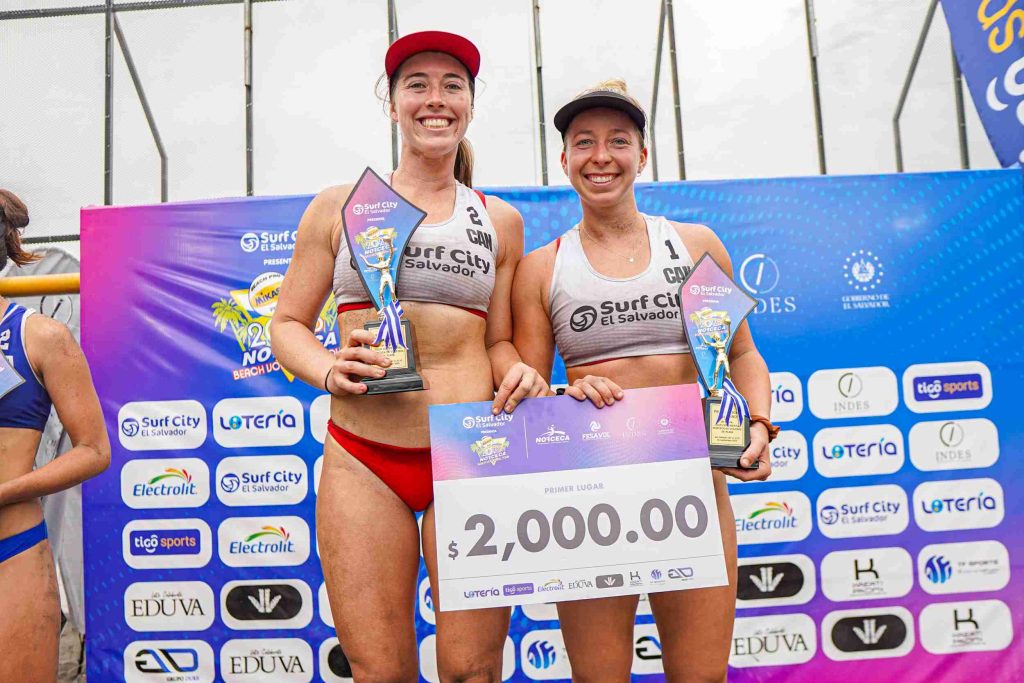
McKay-Dunn of Canada Shine with Gold in El Salvador
Sep 14, 2025
SAN SALVADOR, El Salvador, September 14, 2025.- Alison McKay and Darby Dunn of Canada painted themselves with gold by winning the Gold Medal of the 8th stop of the 2025 NORCECA Beach Tour, held at the Flor Blanca beach stadium. A high-class final was played on Sunday afternoon on Court 1 of the Flor Blanca Beach […]

Mexico’s Sarabia/Osuna conquer the Gold in El Salvador
Sep 14, 2025
SAN SALVADOR, El Salvador. September 14, 2025.- Mexico’s number 1 pair, Sarabia/Osuna, conquered the Gold of the 8th stop of the 2025 NORCECA Beach Tour, held at the Flor Blanca beach stadium. Miguel Sarabia and Jorman Osuna defeated Canadians of Martin Licht and Luke de Greeff in the grand finale with scores of 21-15 and 21-13. […]
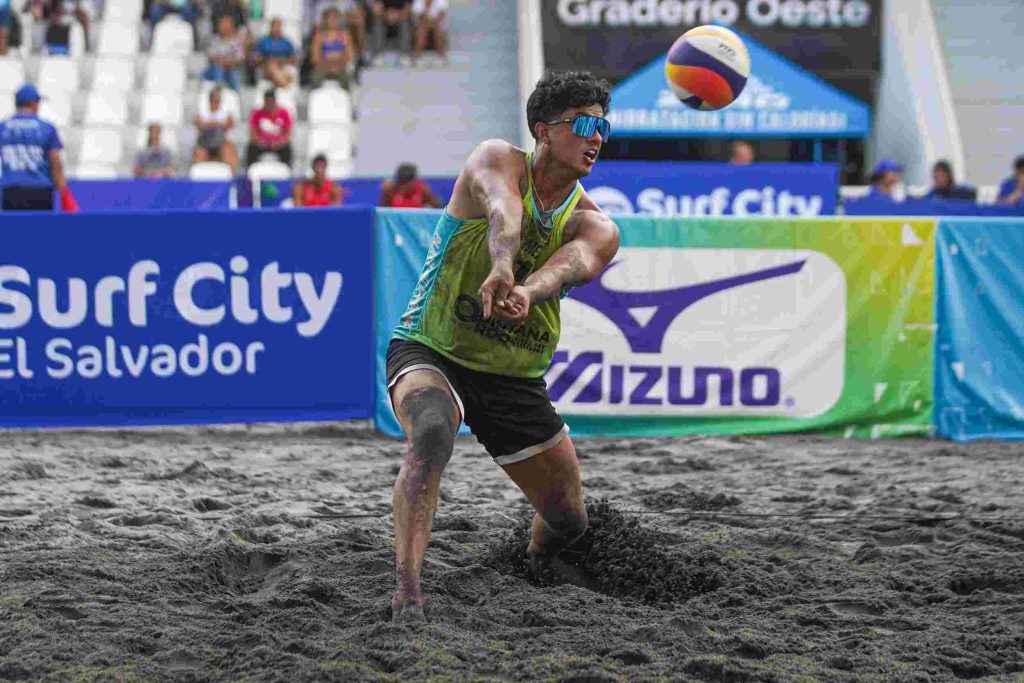
Canada secures a team in the final; Costa Rica and Mexico for the other ticket
Sep 13, 2025
San Salvador, El Salvador. September 13, 2025. – The two Canadian teams qualified for the semifinals of the 8th stop of the 2025 NORCECA Beach Tour, held at the Flor Blanca beach stadium, thus ensuring one spot in the tournament final, while Costa Rica and Mexico will play the other semifinal for the second spot. […]
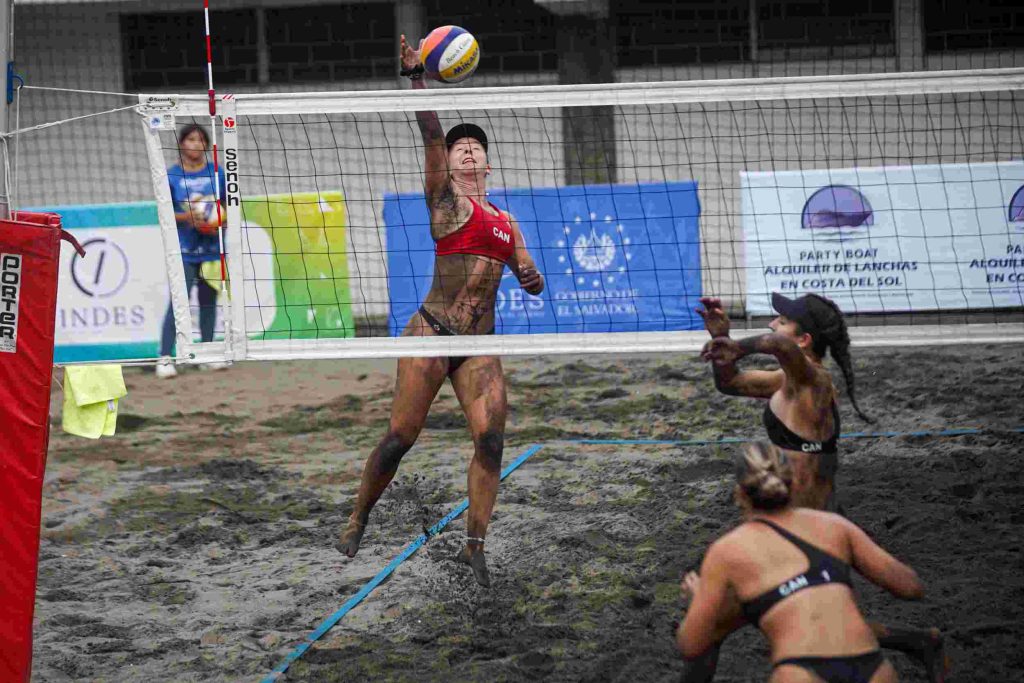
Venezuela, Puerto Rico, Canada and USA move into the Women’s Semifinals
Sep 13, 2025
San Salvador, El Salvador. September 13, 2025. – Venezuela, Puerto Rico, Canada and the United States qualified for the semifinals of the 8th stop of the 2025 NORCECA Beach Tour, held at Flor Blanca Beach Stadium. Venezuela’s Oriana Granadilla / Yonnielis Camacho advanced after mercilessly defeating Katherine Quesada / Eugenia Ramírez of Costa Rica with scores […]
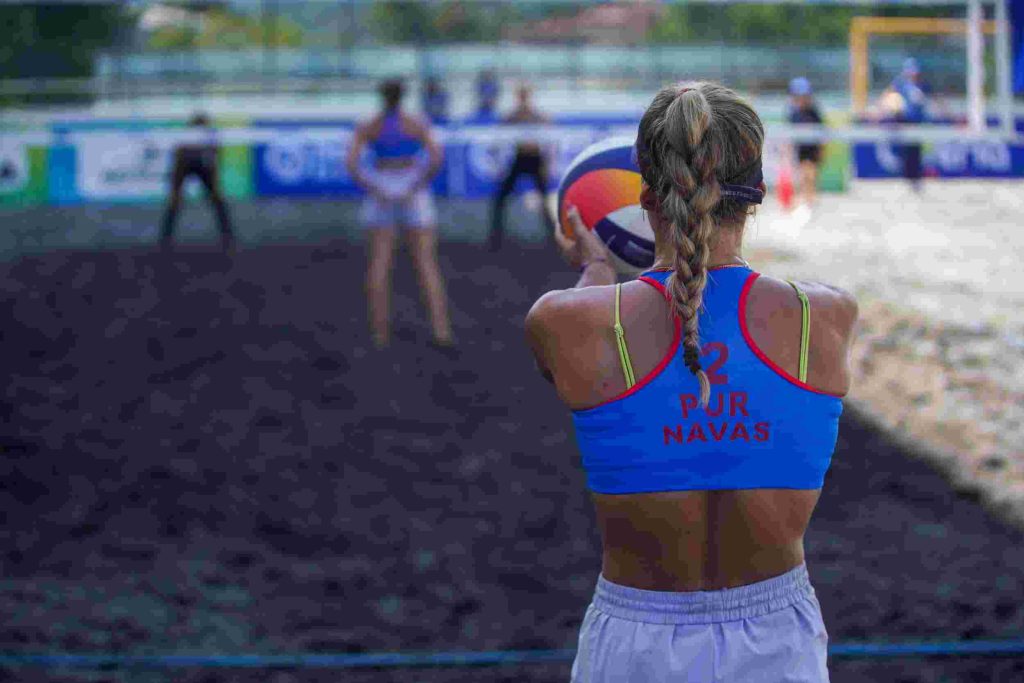
Puerto Ricans González/Navas start the tournament in full force
Sep 12, 2025
San Salvador, El Salvador. September 12, 2025. – The Puerto Rican duo of María Claudia González and Allanis Navas started strong in their quest for a sixth consecutive title, on the first day of action of the 8th Stop of the NORCECA Beach Volleyball Tour 2025, held at the Flor Blanca Beach Sports Stadium. The […]
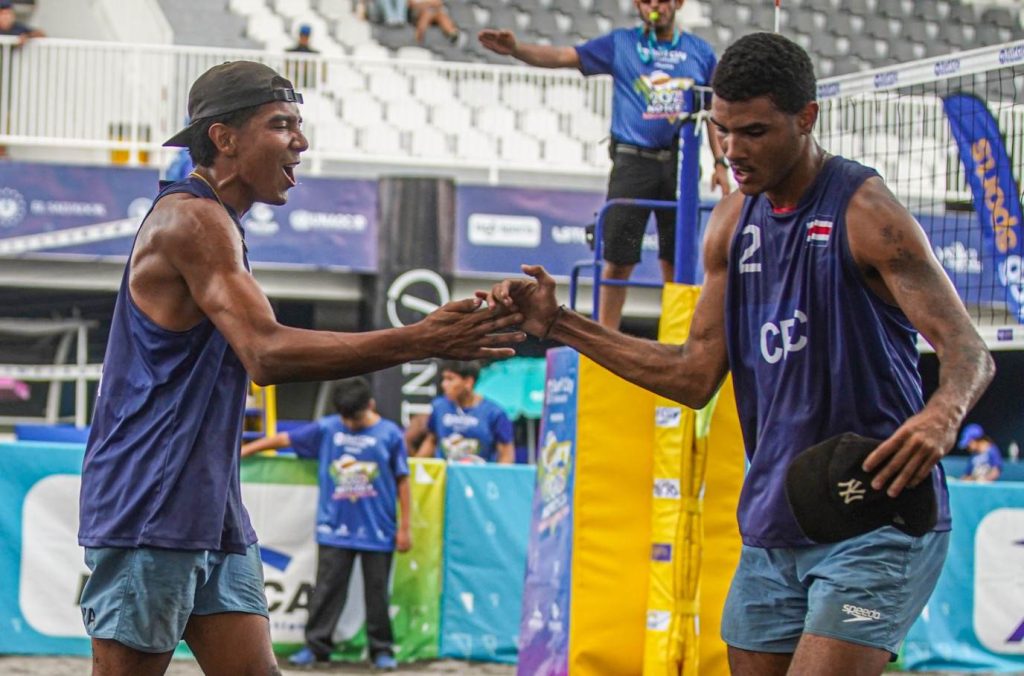
Costa Rica and Nicaragua remain undefeated in the Men’s Division
Sep 12, 2025
San Salvador, El Salvador. September 12, 2025. – The pairs from Costa Rica, Julián Araya / Jhostin Varela, and Nicaragua, Rubén Mora / Dany López, started undefeated in the 8th stop of the 2025 NORCECA Beach Volleyball Tour, held at the Flor Blanca Beach Sports Stadium. The opening day was marked by very close duels […]

Everything Ready for the 8th Stop of the NORCECA Tour in El Salvador
Sep 12, 2025
SAN SALVADOR, El Salvador, September 11, 2025. – Everything is set for the start of the eighth stop of the 2025 NORCECA Beach Volleyball Tour, scheduled to take place September 12-14 at the Flor Blanca Beach Sports Stadium. Teams from twelve countries are officially registered, guaranteeing three days of high-level action for El Salvador’s fans. […]

Eighth Stop of the NORCECA Beach Volleyball Tour Heads to El Salvador
Sep 10, 2025
SAN SALVADOR, El Salvador, September 10, 2025.– The eighth stop of the 2025 NORCECA Beach Volleyball Tour will take place September 12-14 at the Sand Sports Stadium of the Flor Blanca Sports Complex in San Salvador. This marks the third consecutive year that El Salvador hosts a stage of the prestigious continental circuit. For this edition, […]
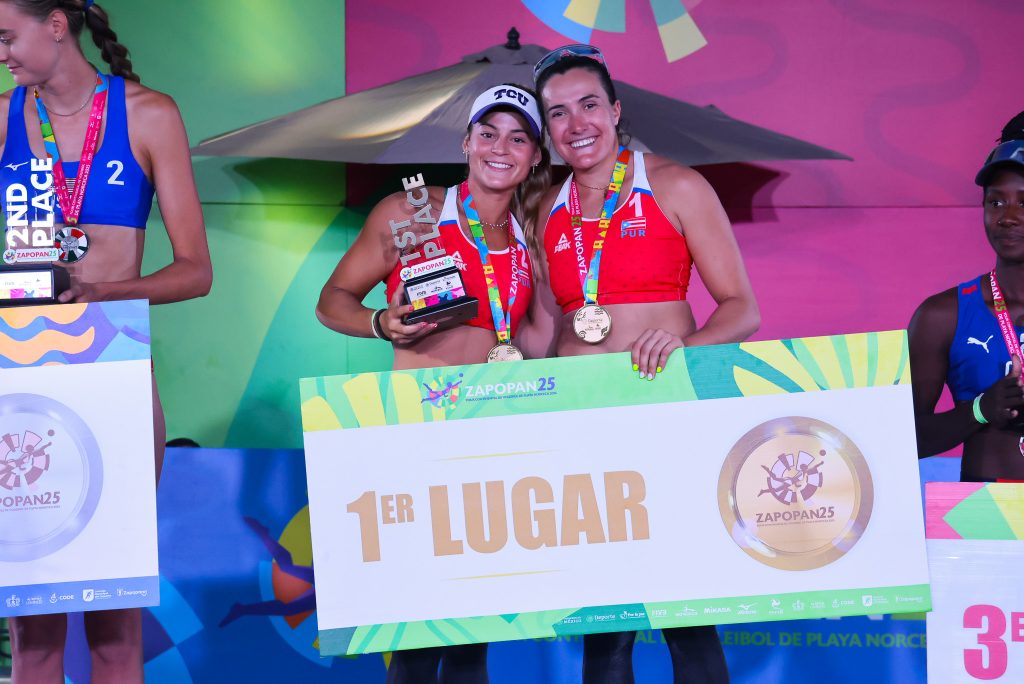
Maria Gonzalez and Allanis Navas Claim Fifth Consecutive Gold
Sep 07, 2025
ZAPOPAN, Jalisco, September 7, 2025. – Puerto Rico’s Maria Gonzalez and Allanis Navas claimed their fifth straight gold medal of the 2025 NORCECA Beach Volleyball Tour, rallying to defeat USA’s Michelle Shaffer and Rachael Kramer 2-1 (14-21, 21-18, 15-9) in a thrilling final in Zapopan, Jalisco. Entering the tournament as the top favorites, Gonzalez and […]
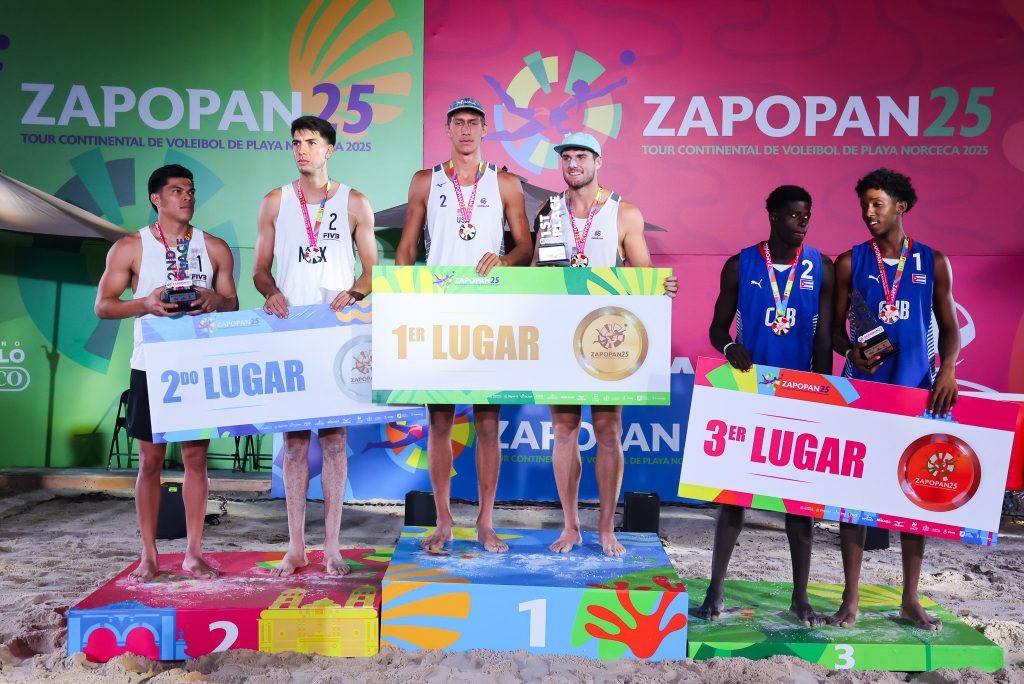
Evan Cory and Derek Bradford of USA Capture Gold in Zapopan
Sep 07, 2025
ZAPOPAN, Jalisco, September 7, 2025. – Evan Cory and Derek Bradford of the United States clinched the gold medal at the seventh stop of the 2025 NORCECA Beach Volleyball Tour, defeating home favorites José Cardenas and Jorman Osuna of Mexico 2-0 (21-17, 21-19) in a thrilling final at the Conjunto Santander de Artes Escénicas in […]
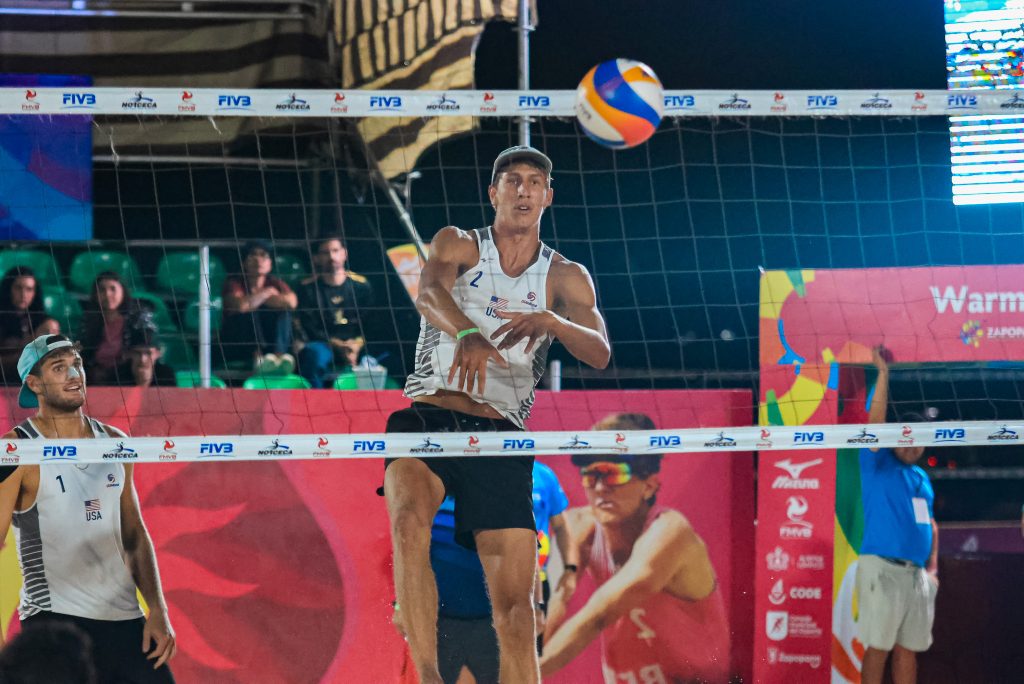
Mexico, Canada, Cuba and USA Reach Men’s Semifinals in Zapopan
Sep 06, 2025
ZAPOPAN, Jalisco, September 6, 2025 – The men’s semifinals are set in Zapopan, with Mexico’s José Cardenas/Jorman Osuna, Canada’s Cameron Chadwick/Robert Kemp, Cuba’s Damian Gomez/Eblis Verane, and USA’s Evan Cory/Derek Bradford advancing at the seventh stop of the 2025 NORCECA Beach Volleyball Tour. Sunday’s semifinals will see local favorites Cardenas/Osuna take on Chadwick/Kemp of Canada, […]
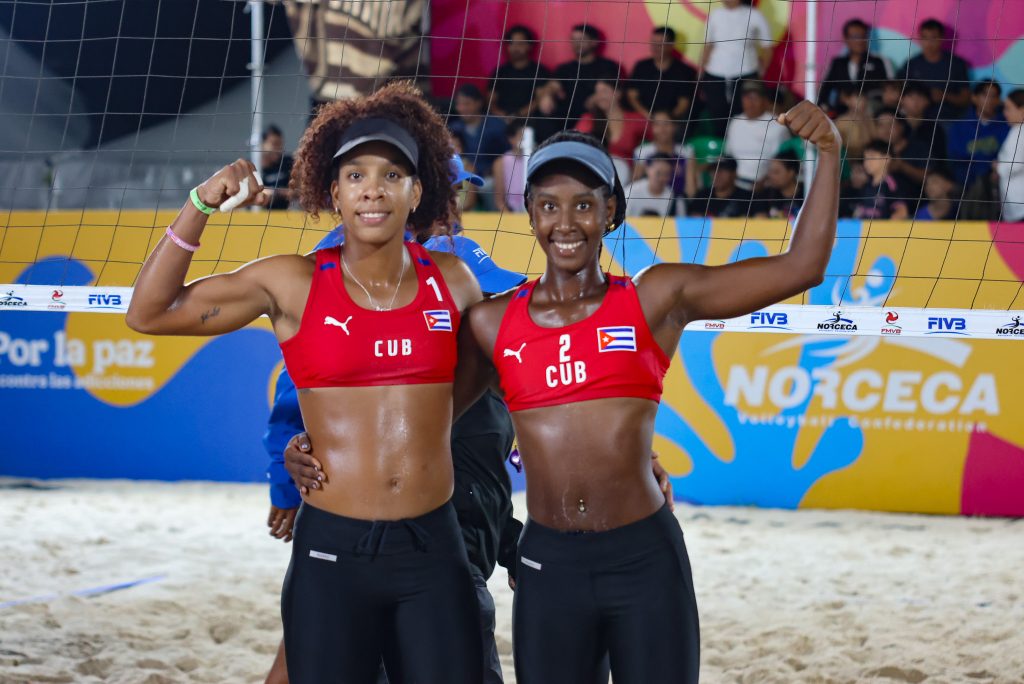
Cubans Stun Home Favorites to Reach Semifinals in Zapopan
Sep 06, 2025
ZAPOPAN, Jalisco, September 6, 2025 .– Cuba’s Kailin Garrido and Maykelin Drik pulled off a major upset on Saturday, defeating Mexican home favorites Susana Torres and Atenas Gutiérrez 2-0 (21-17, 21-17) in the quarterfinals to secure a spot in the women’s semifinals of the seventh stage of the 2025 NORCECA Beach Volleyball Tour. The win […]
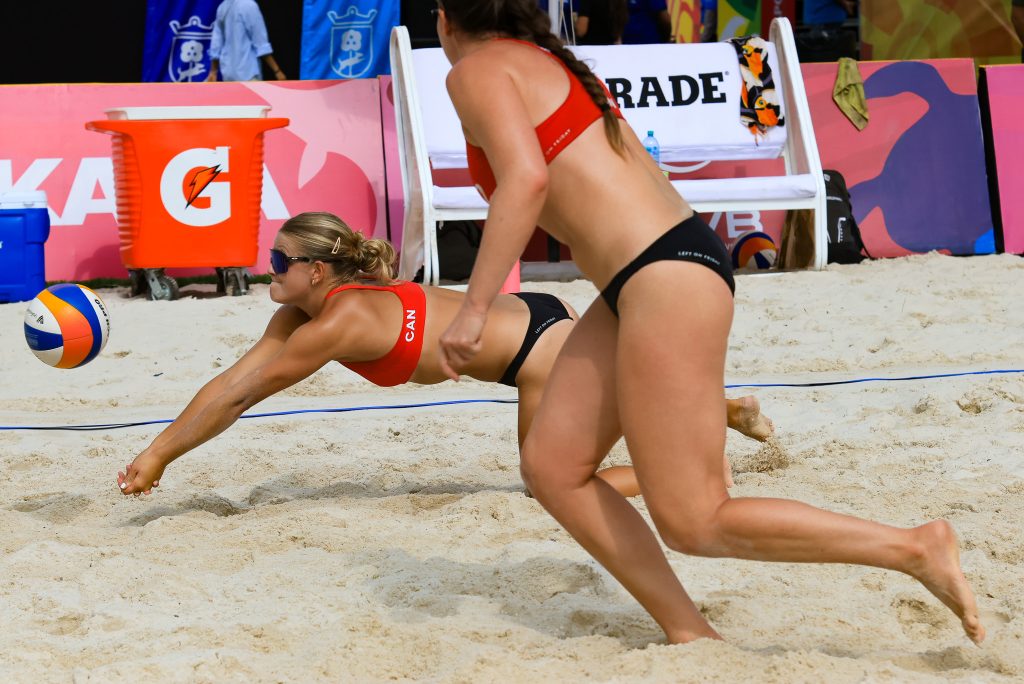
Canada, Venezuela and USA Go Undefeated on Opening Day in Zapopan
Sep 05, 2025
ZAPOPAN, Jalisco, September 5, 2025.– Canadians Darby Dunn/Mikayla Law-Heese, Venezuela’s Aidana Mejías/Varlria Moreno and Americans Michelle Shaffer/Rachael Kramer each celebrated two victories on Friday’s opening day of the women’s competition at the seventh stop of the 2025 NORCECA Beach Volleyball Tour, held in Zapopan, Jalisco. Dunn and Law-Heese dominated Pool D, going undefeated with back-to-back […]
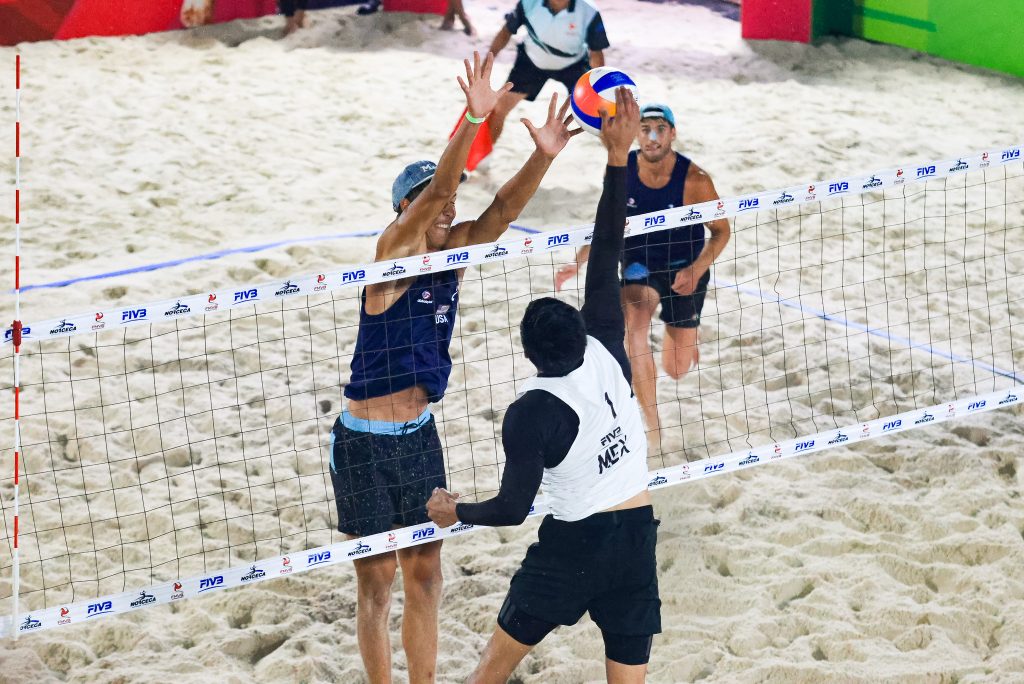
USA, Canada, and Venezuela Open the NORCECA Tour 7th Stage Unbeaten
Sep 05, 2025
ZAPOPAN, Jalisco, September 5, 2025. – USA’s Evan Cory/Derek Bradford, Canada’s Cameron Chadwick/Robert Kemp, and Venezuela’s Juliangel Zaid/Esynser Delgado opened the seventh stage of the 2025 NORCECA Beach Volleyball Tour with unbeaten records at the Conjunto Santander de Artes Escénicas in Zapopan, Jalisco. Evan Cory and Derek Bradford of the United States dominated Pool D, […]
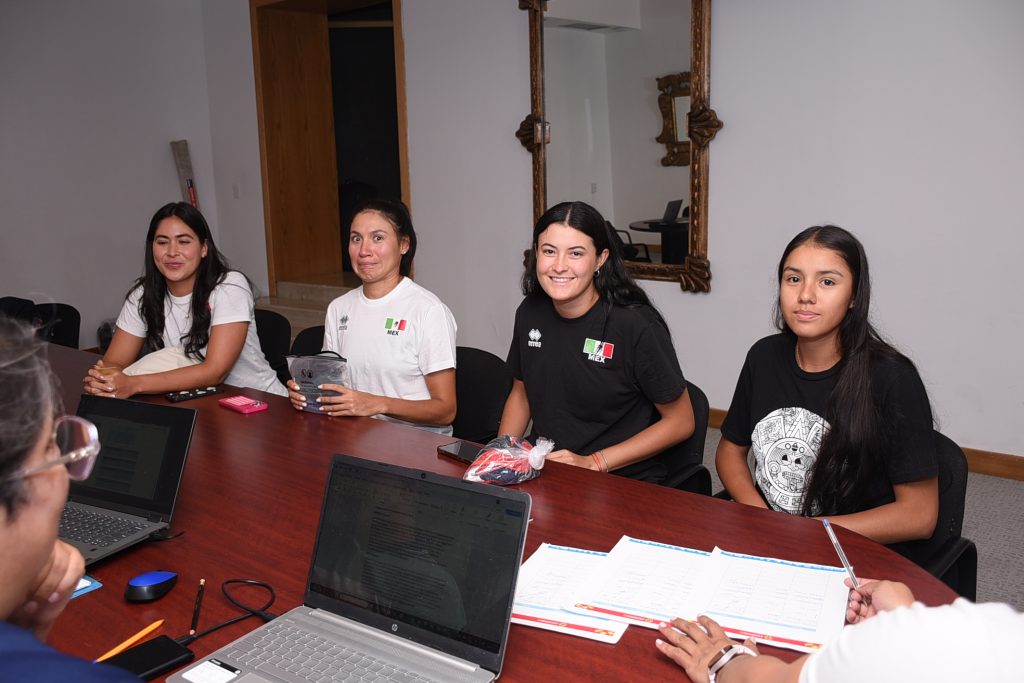
Teams from Eleven Countries Ready for NORCECA Beach Volleyball Action in Zapopan
Sep 05, 2025
ZAPOPAN, Jalisco, Mexico, September 4, 2025. – The excitement of the seventh stop of the 2025 NORCECA Beach Volleyball Tour comes to Zapopan, Jalisco, this weekend at the iconic Conjunto Santander de Artes Escénicas, with teams from eleven countries officially registered to compete. The tournament will feature 14 women’s teams and 15 men’s teams, promising […]
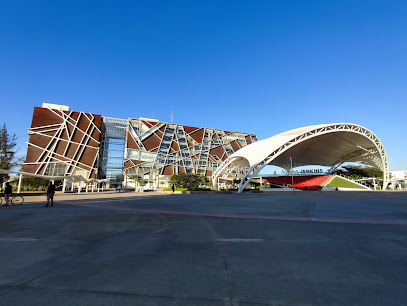
Guadalajara Gears Up for the 7th Stop of the 2025 NORCECA Beach Volleyball Tour
Sep 03, 2025
GUADALAJARA, Mexico, September 3, 2025. – The excitement of beach volleyball comes to Guadalajara for the first time with the seventh stop of the 2025 NORCECA Continental Tour, to be held September 5-7 at the Conjunto Santander de Artes Escénicas in Zapopan. Mexico is hosting four Tour stops during the 2025 season, with Puerto Madero, […]
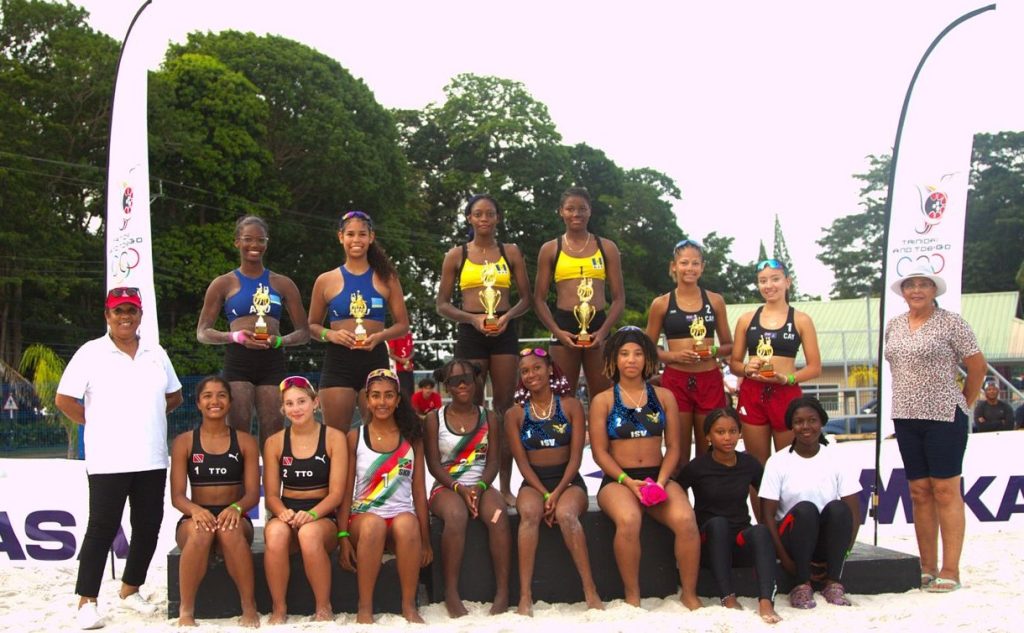
Barbados Destiny Layne and Janica Grant took Gold in CAZOVA U18
Sep 01, 2025
COURLAND, Tobago. August 30, 2025. Barbados Destiny Layne and Janica Grant took the gold medal in the first CAZOVA Girls U18 Beach Volleyball Champion when they defeated the Aruba’s duo of Whitfield and Eduards 21-9, 21-11. In the semifinals, Whitfield and Eduards eased past Cayman Islands’ Luna Ebanks and Krisi Smith, while Layne and Grant […]
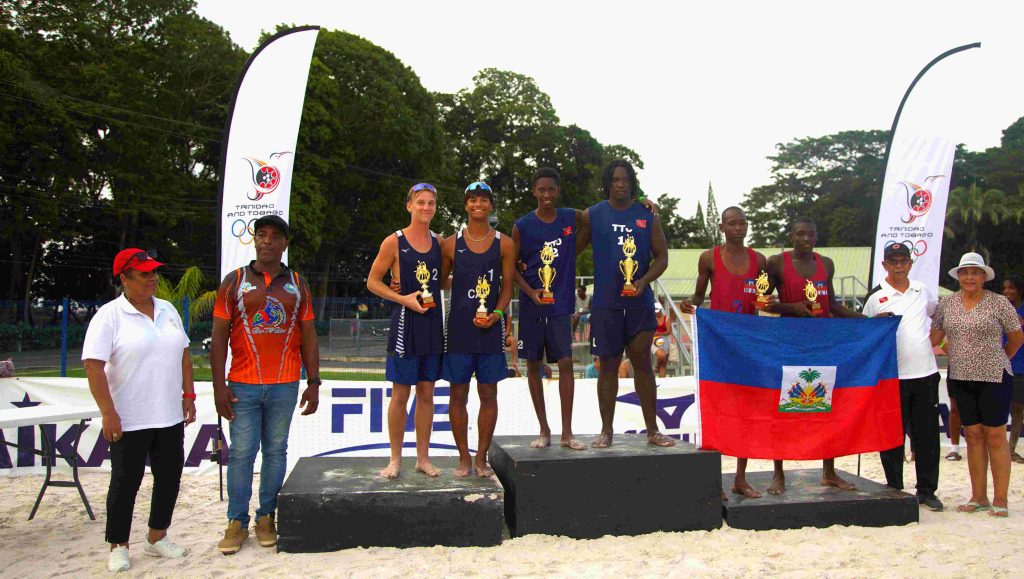
TTO’s Jeremiah Jankey and Michael Burkett spiked CAZOVA U18 Gold
Sep 01, 2025
Courland, Tobago, August 30, 2025.- TTO’s Jeremiah Jankey and Michael Burkett spiked their way to the Caribbean Zonal Volleyball Association (CAZOVA) Under-18 Beach Volleyball Tournament final with a hard-fought three-set win over Cayman Island’s Dylan Lynee and William Duty at the Courland Beach Sports Arena, in Courland, Black Rock, Tobago on Saturday. The hometown pair […]

Cárdenas and Osuna of Mexico Crowned Champions at Home
Aug 31, 2025
MANZANILLO, Colima, August 31, 2025.- Mexico’s José Cárdenas and Jorman Osuna were crowned champions of the sixth stop of the 2025 NORCECA Beach Volleyball Tour at Playa Azul, Manzanillo, defeating Canada’s Robert Kemp and Cameron Chadwick 2-0 in the final with scores of 21-16 and 21-19. Osuna arrived with strong credentials, having already claimed one […]
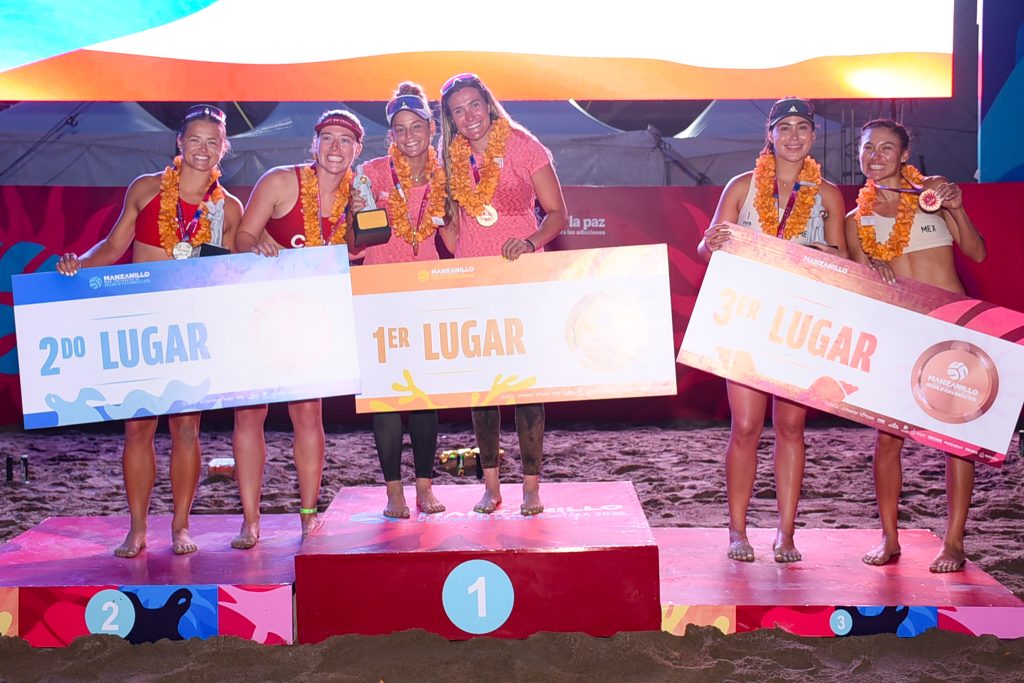
González and Navas of Puerto Rico confirm their dominance in Manzanillo
Aug 31, 2025
MANZANILLO, Colima, August 31, 2025. Puerto Ricans María González and Allanis Navas reaffirmed their status as favorites and captured their fourth gold medal of the season, claiming the championship at the sixth stop of the 2025 NORCECA Beach Volleyball Tour, held at Playa Azul, Manzanillo, Colima. The Puerto Rican duo, who had already defeated Mexico’s Susana […]
